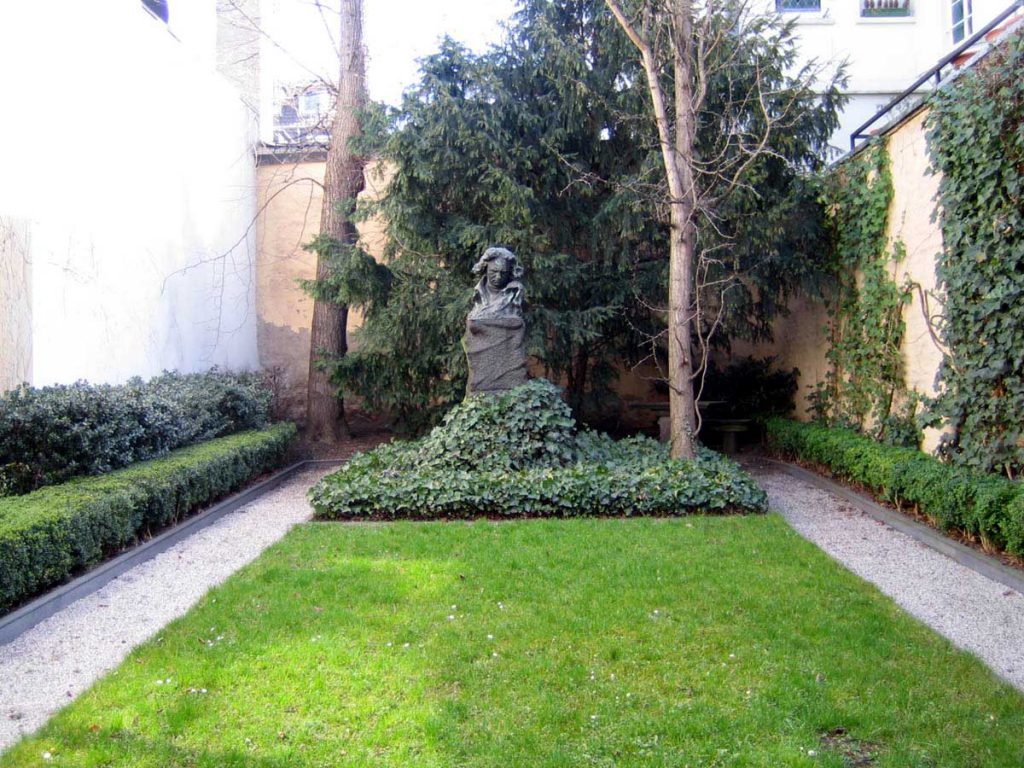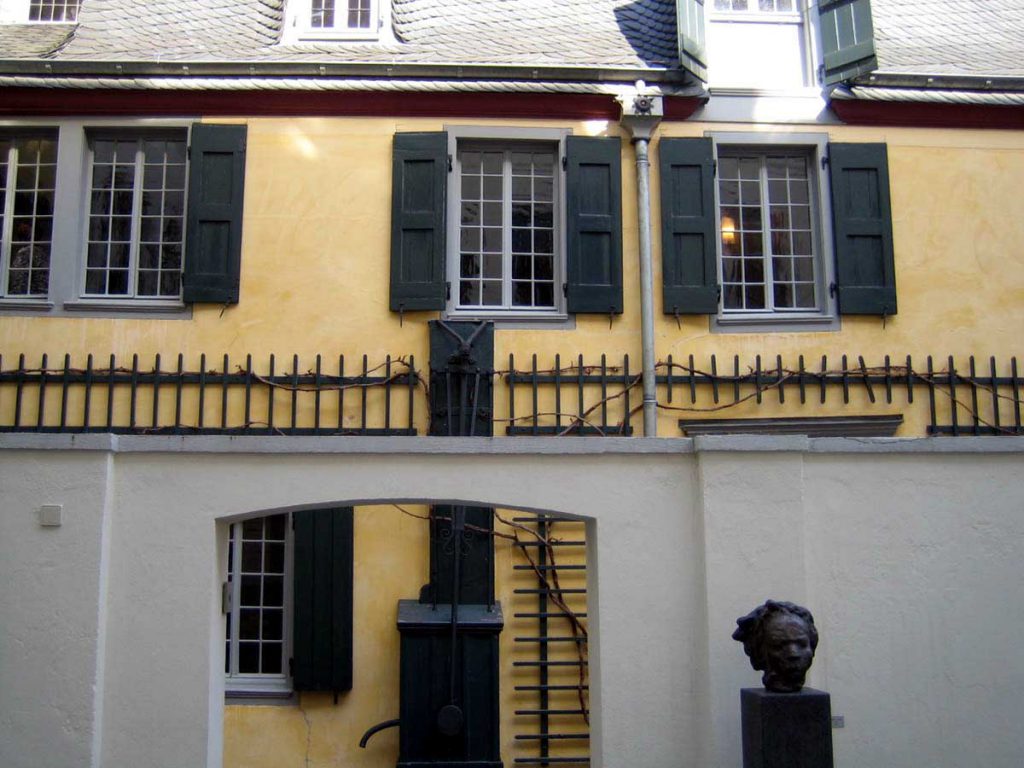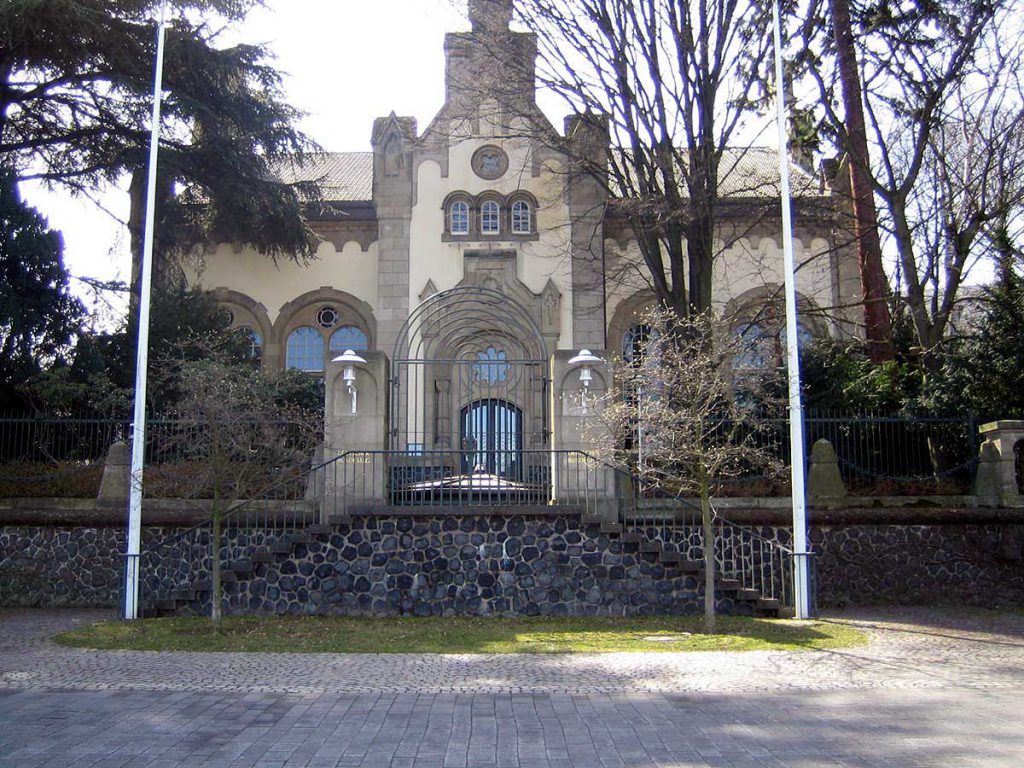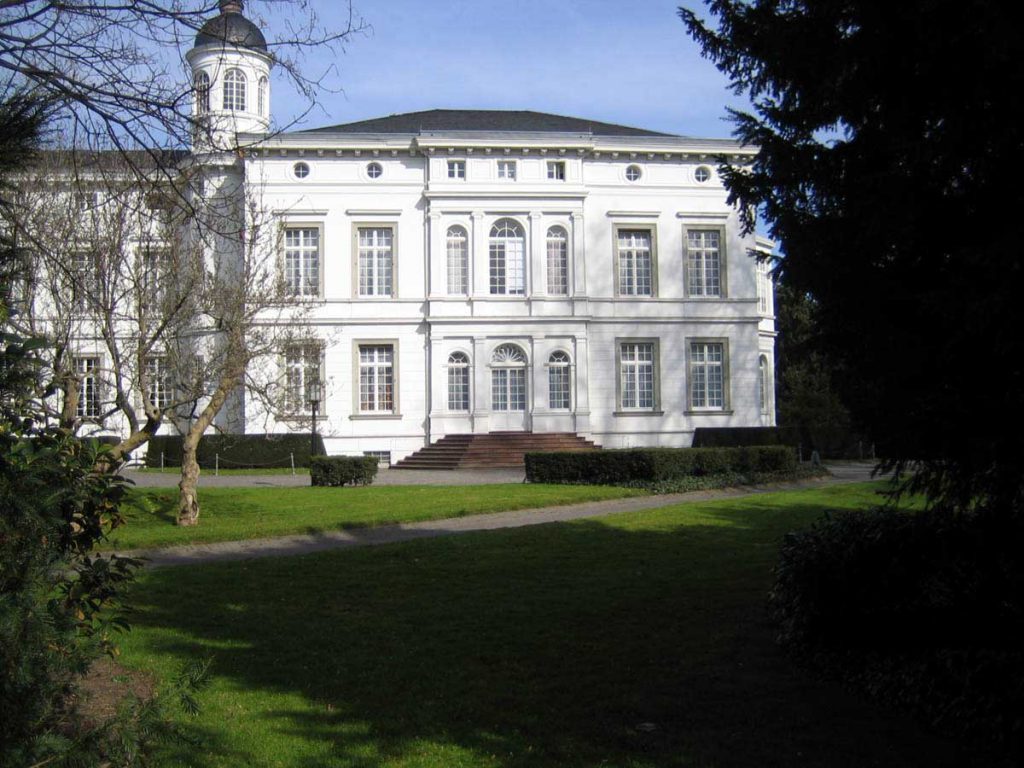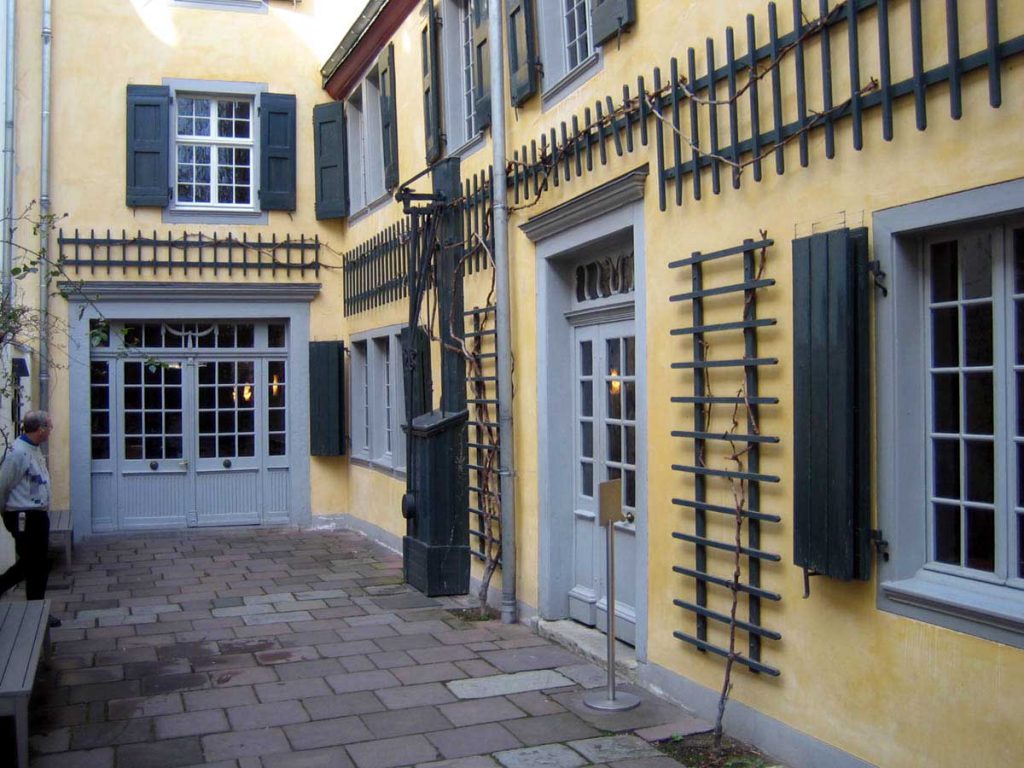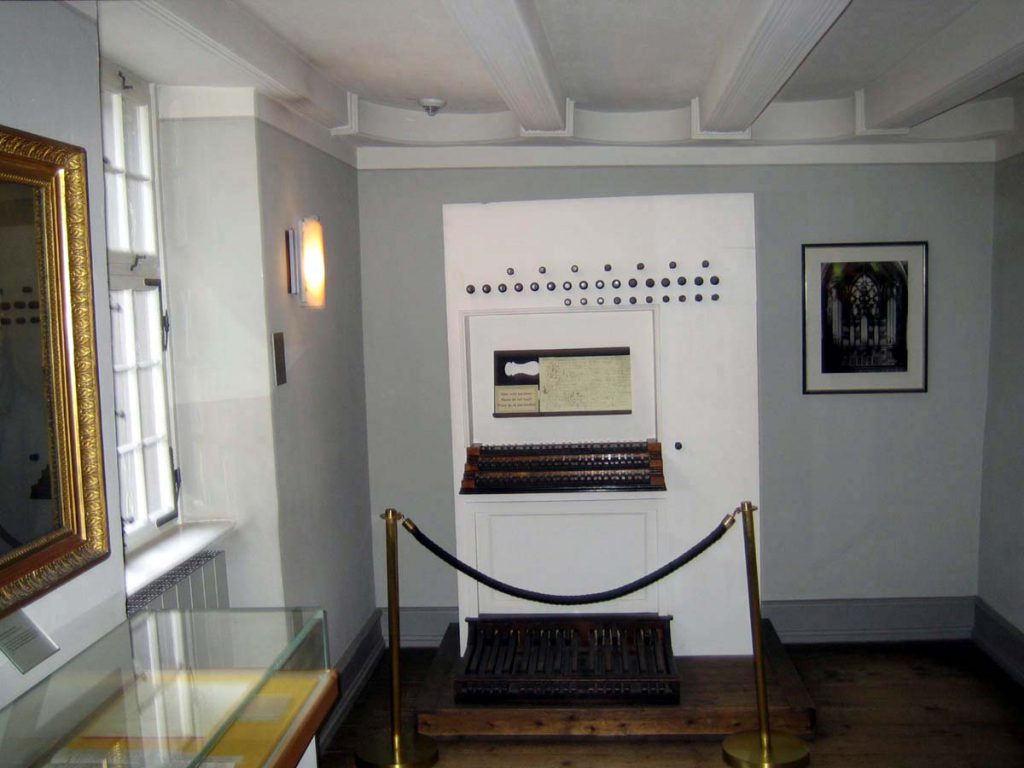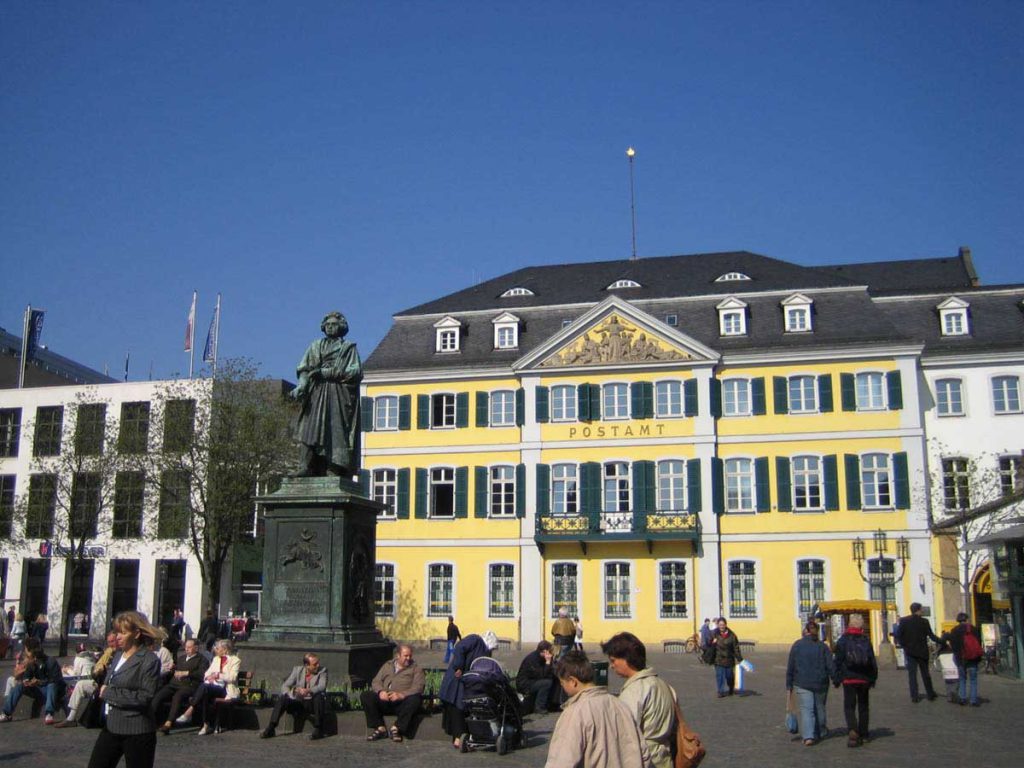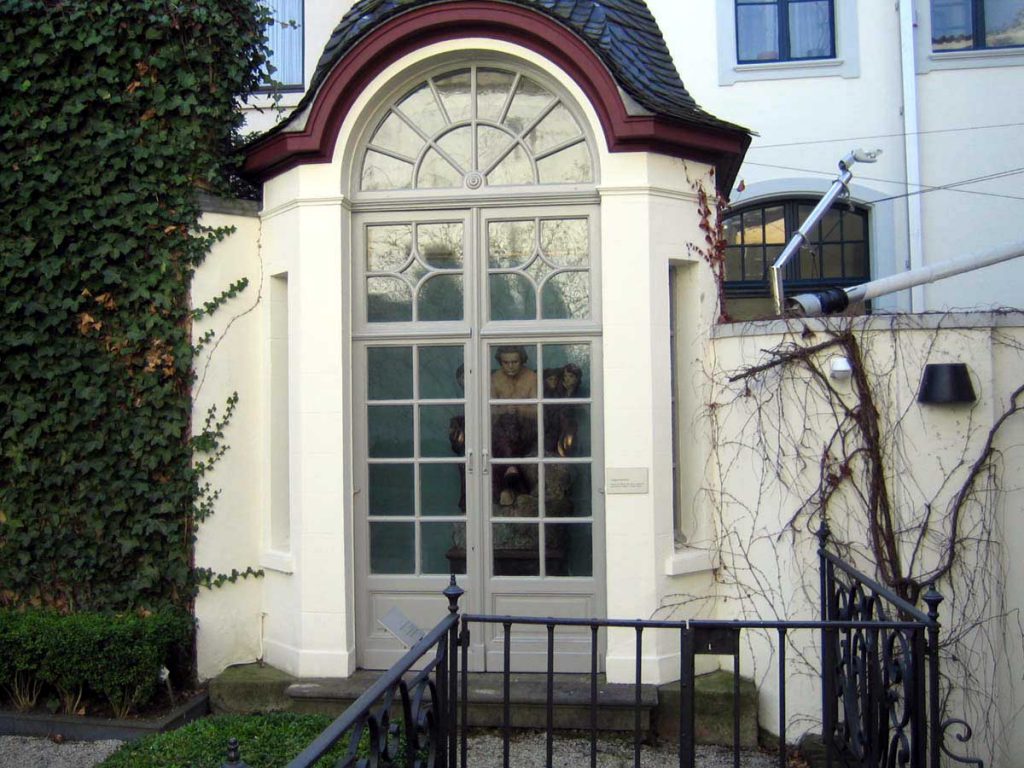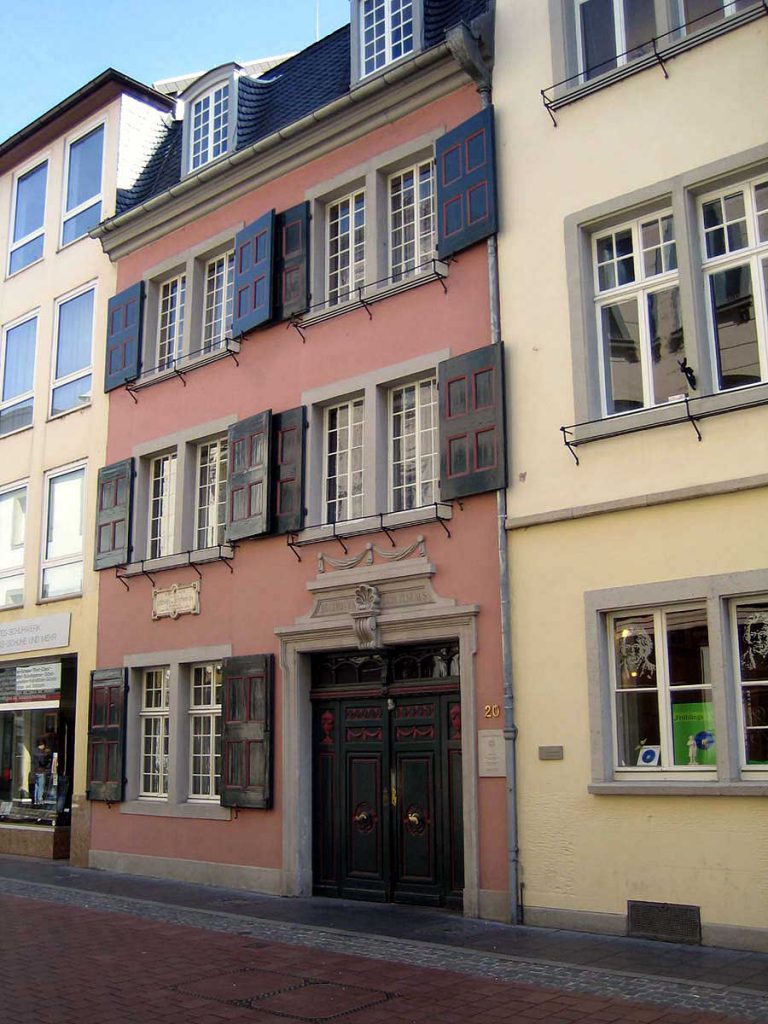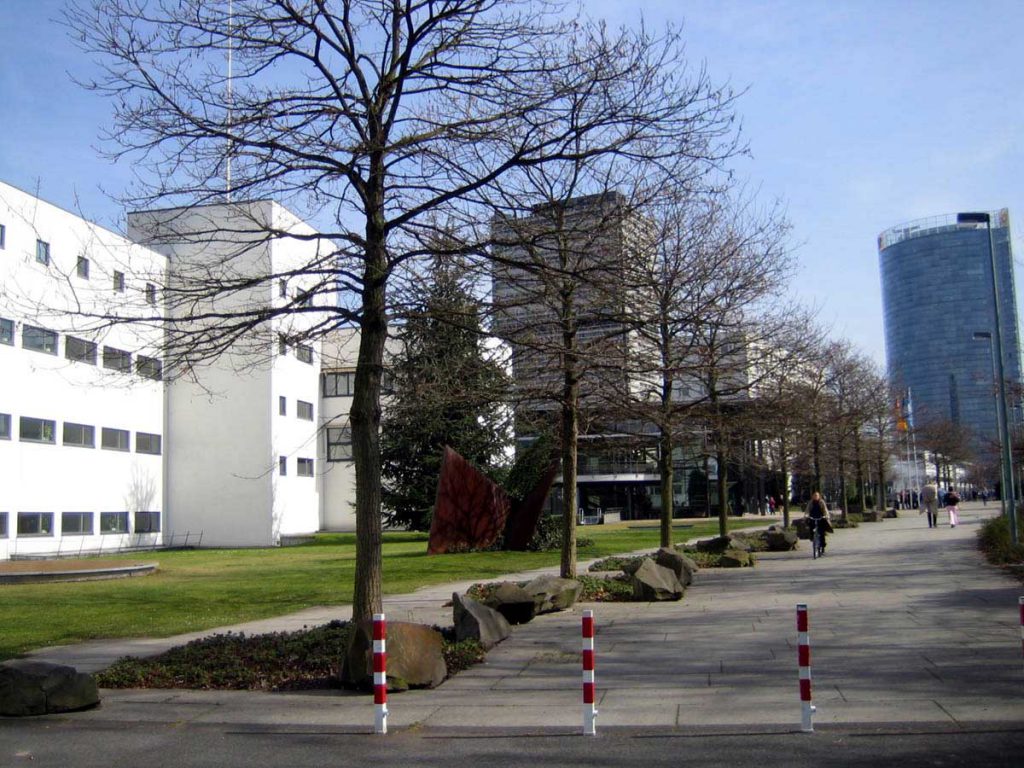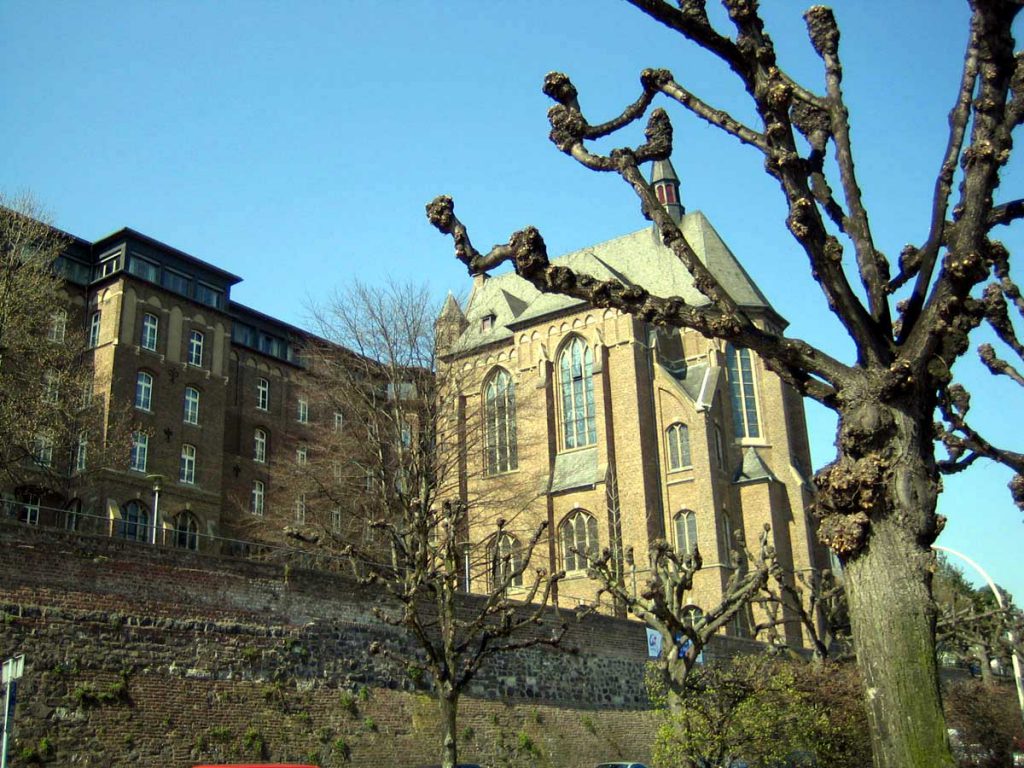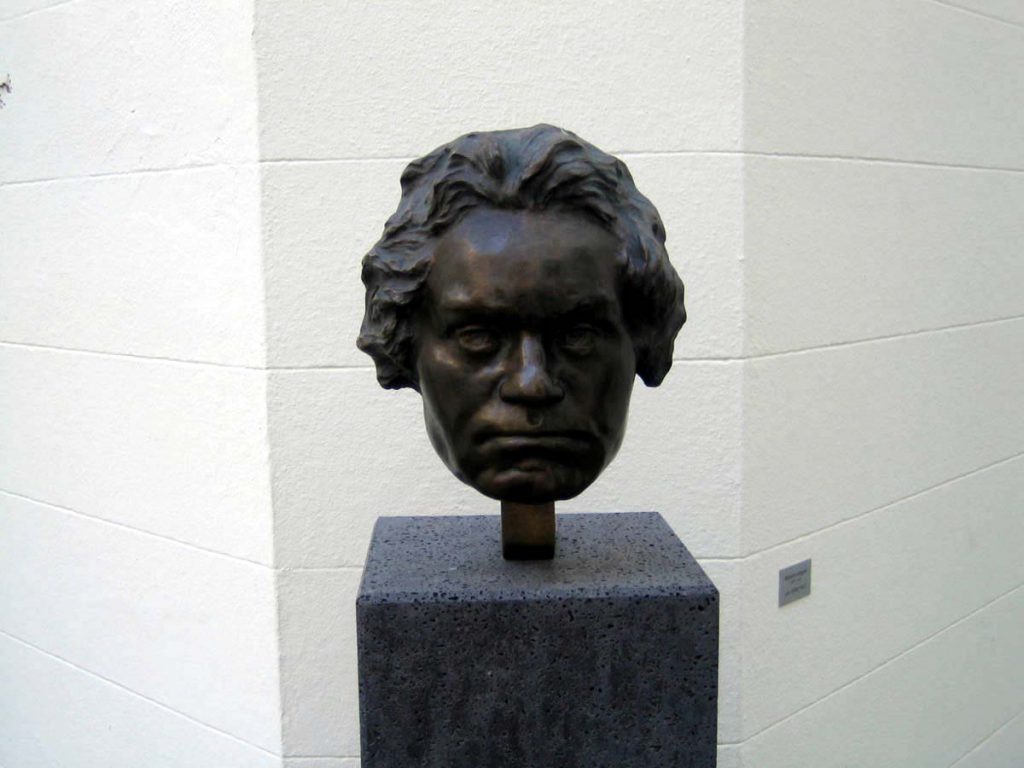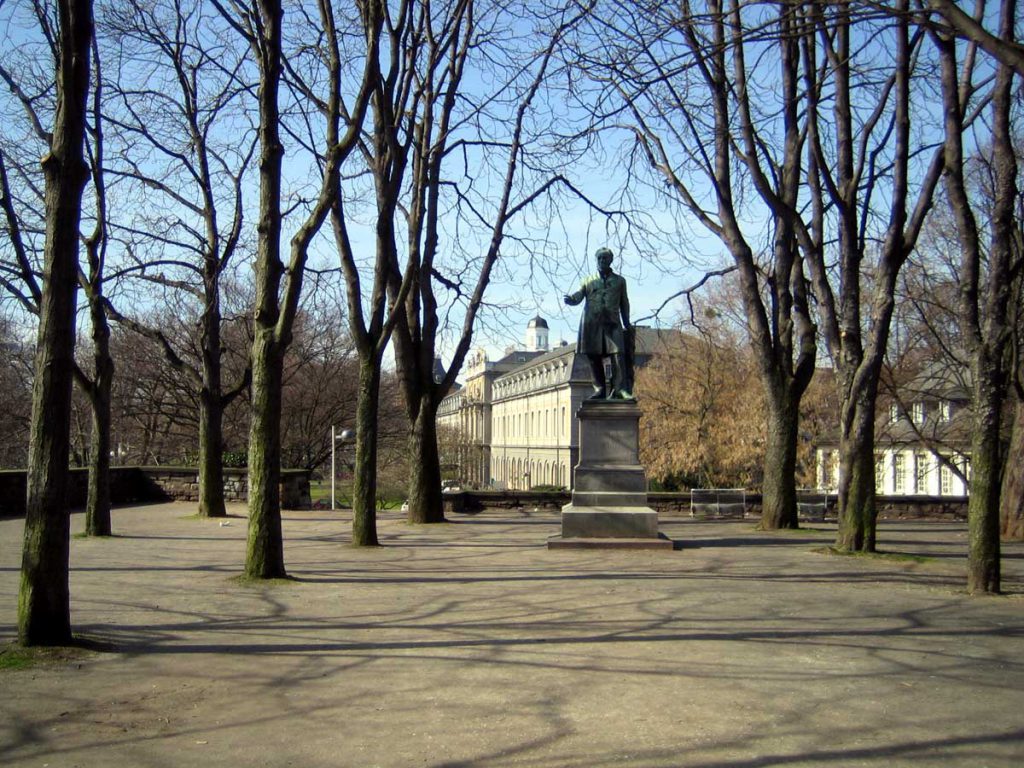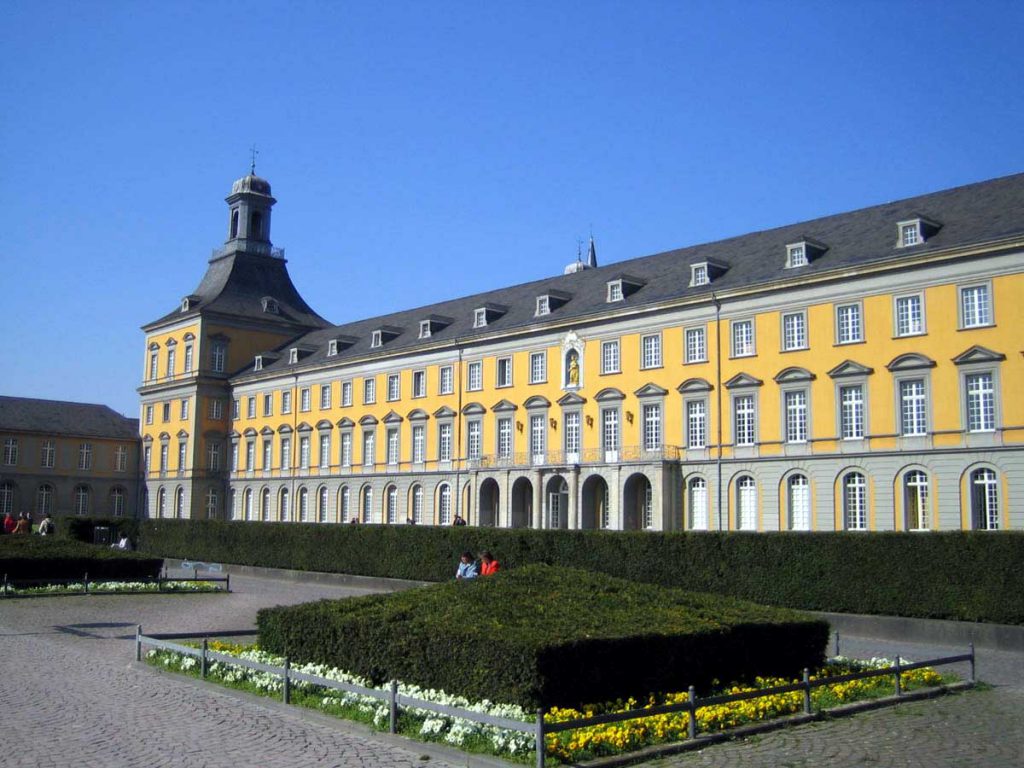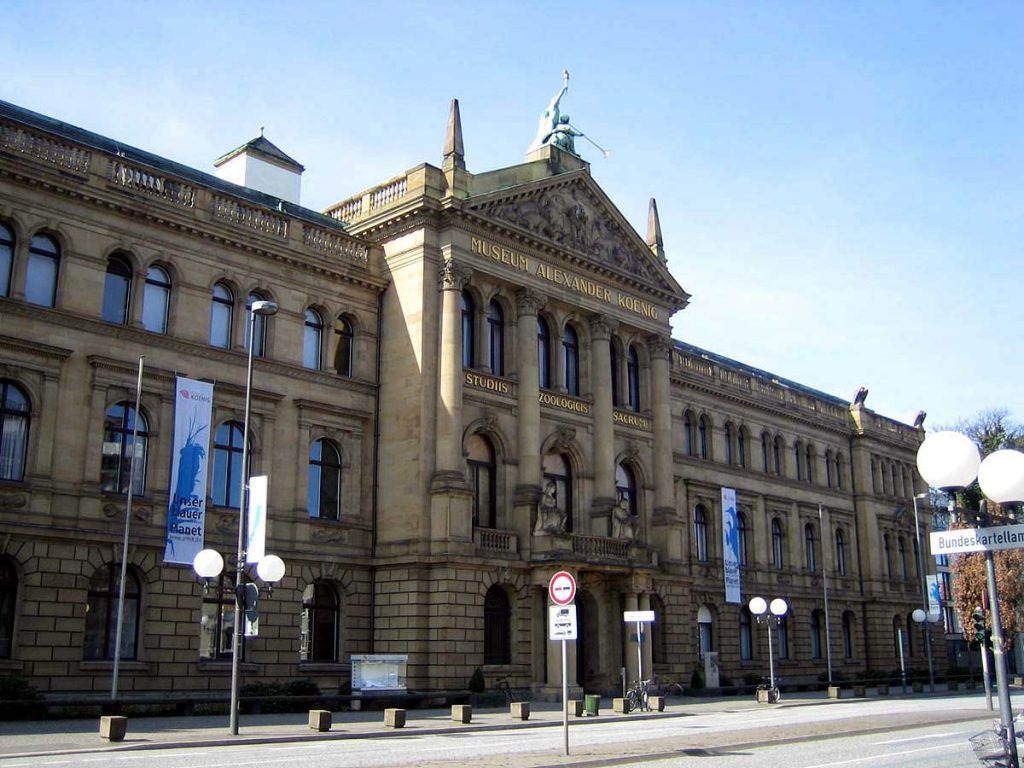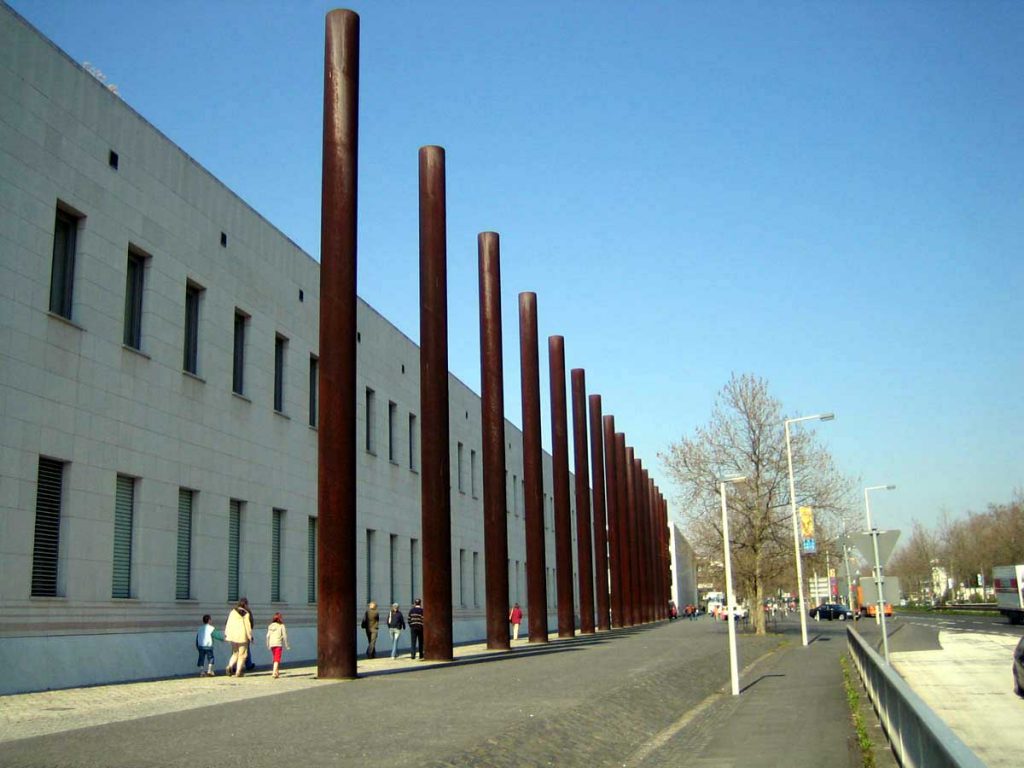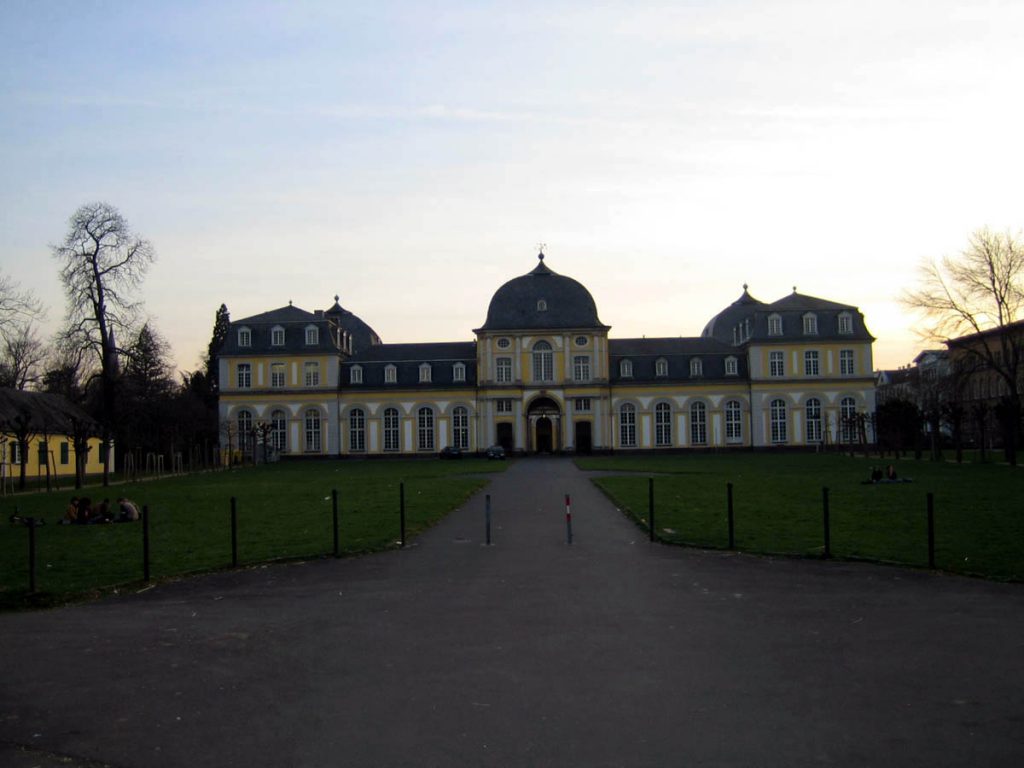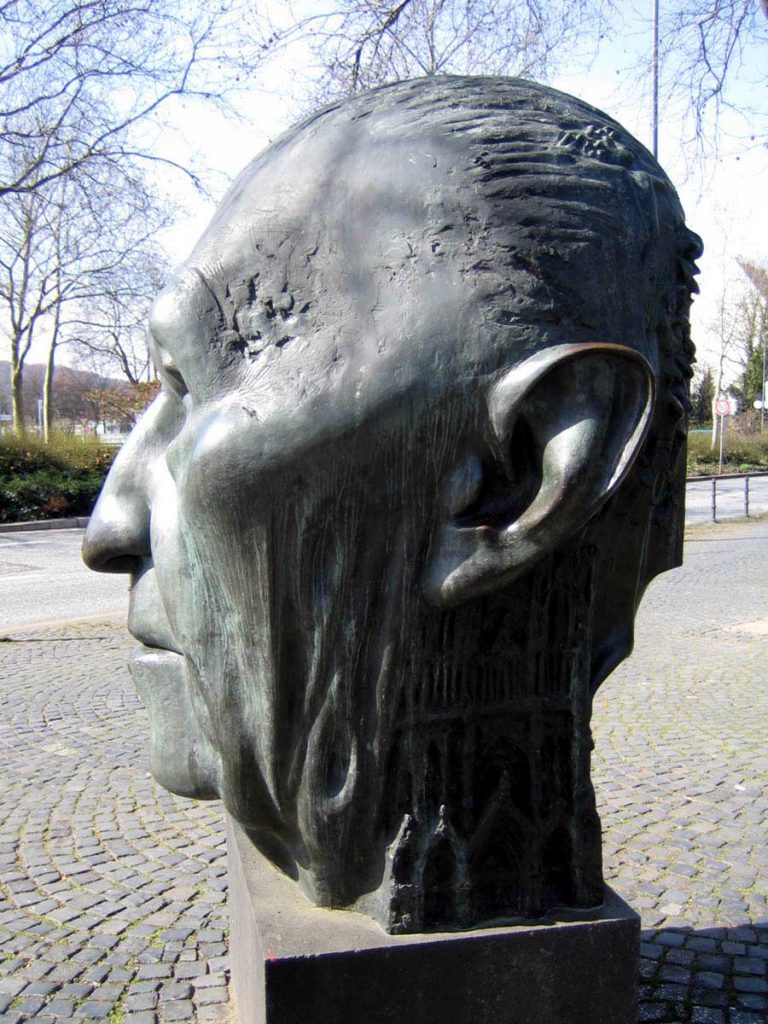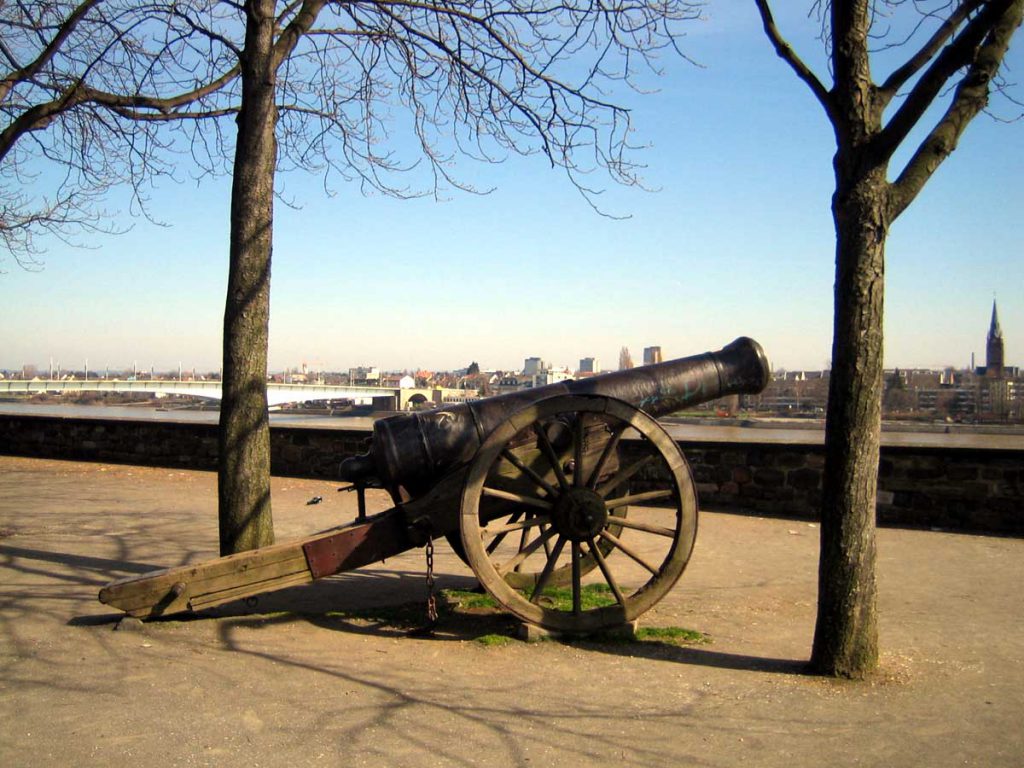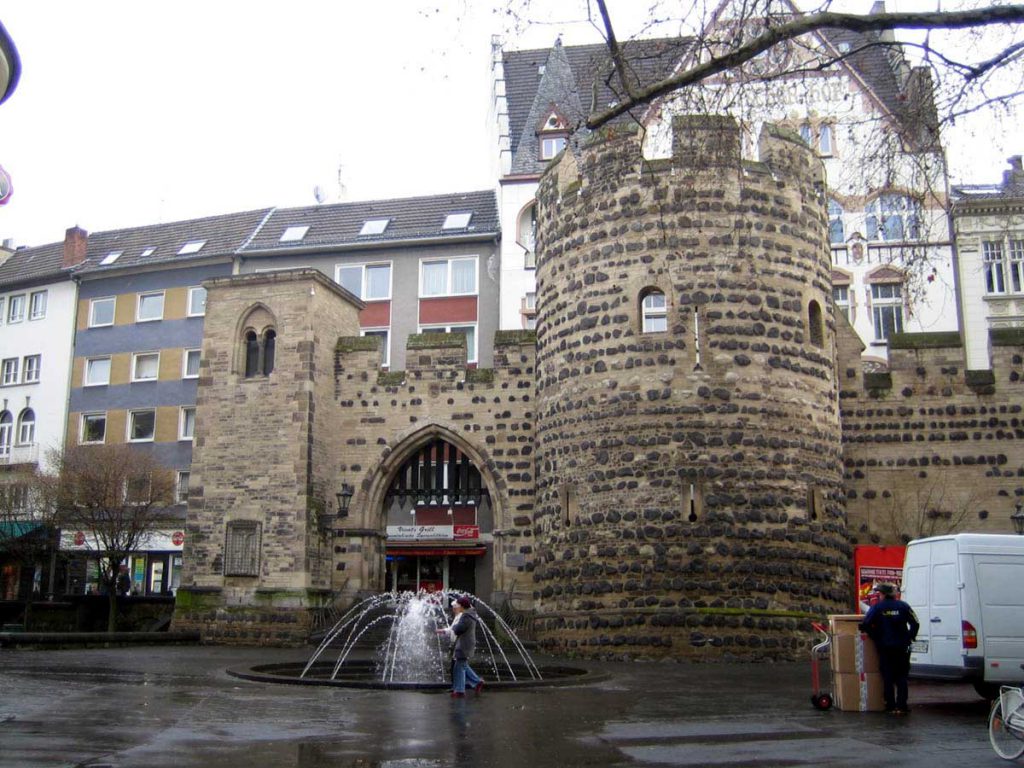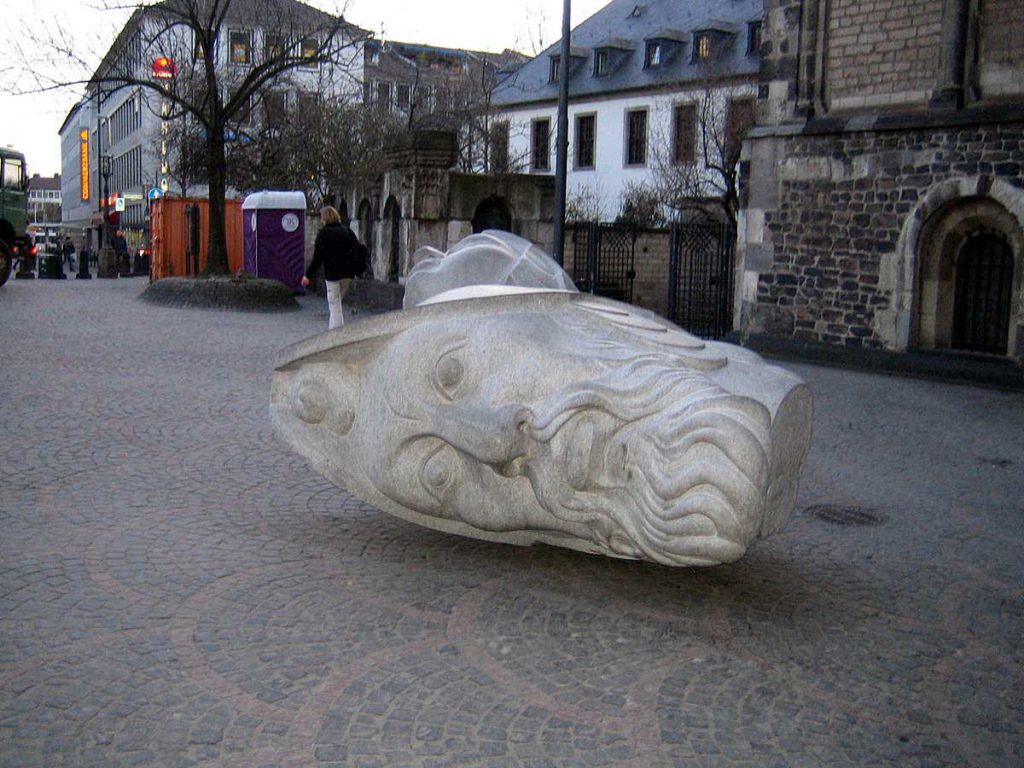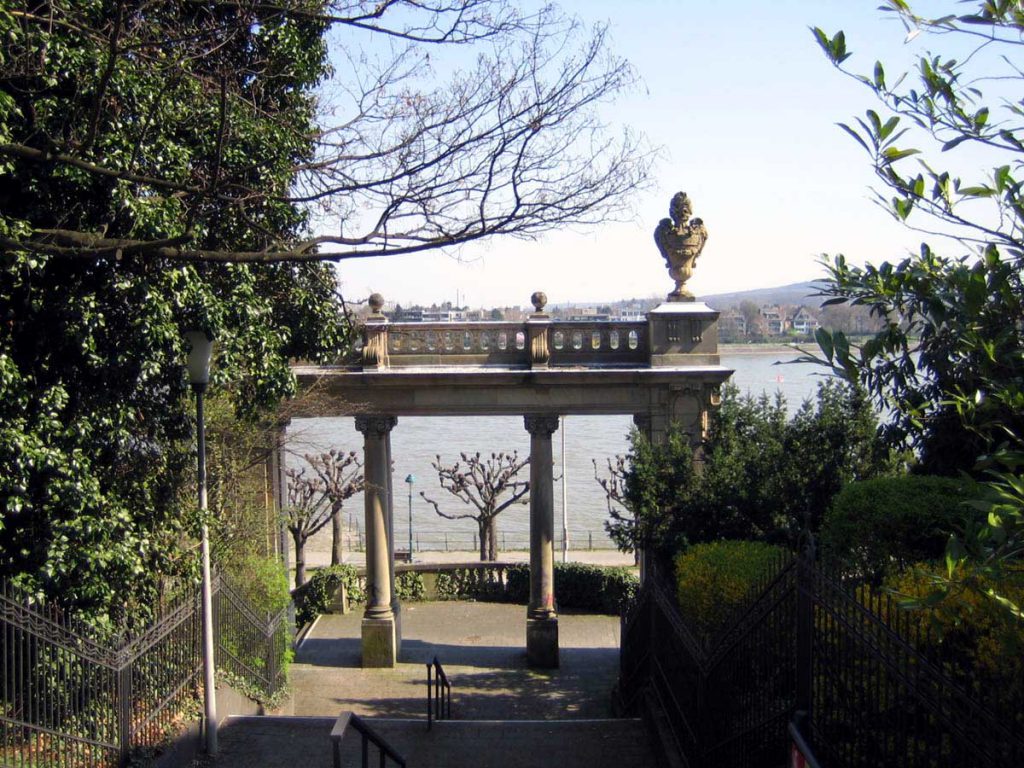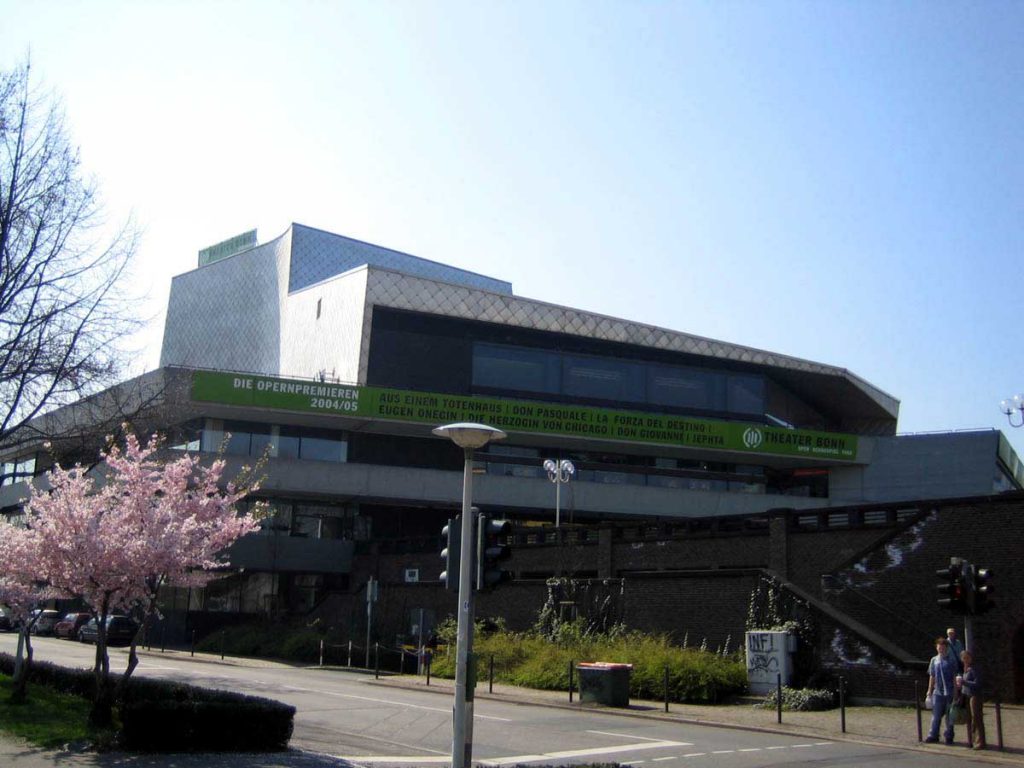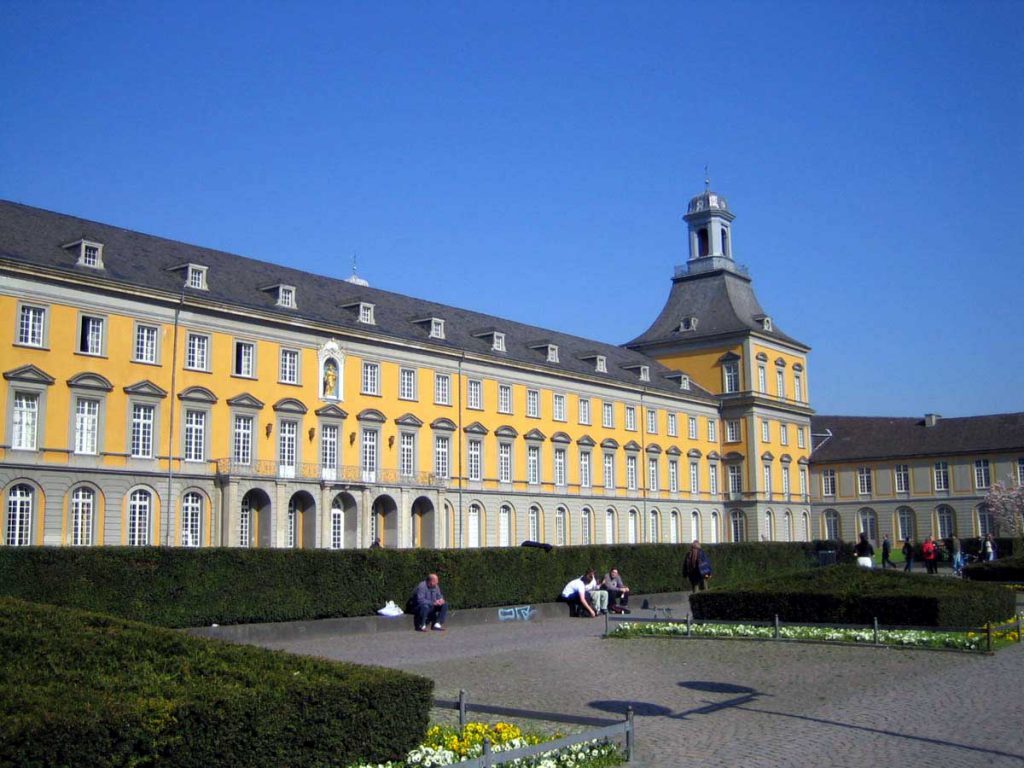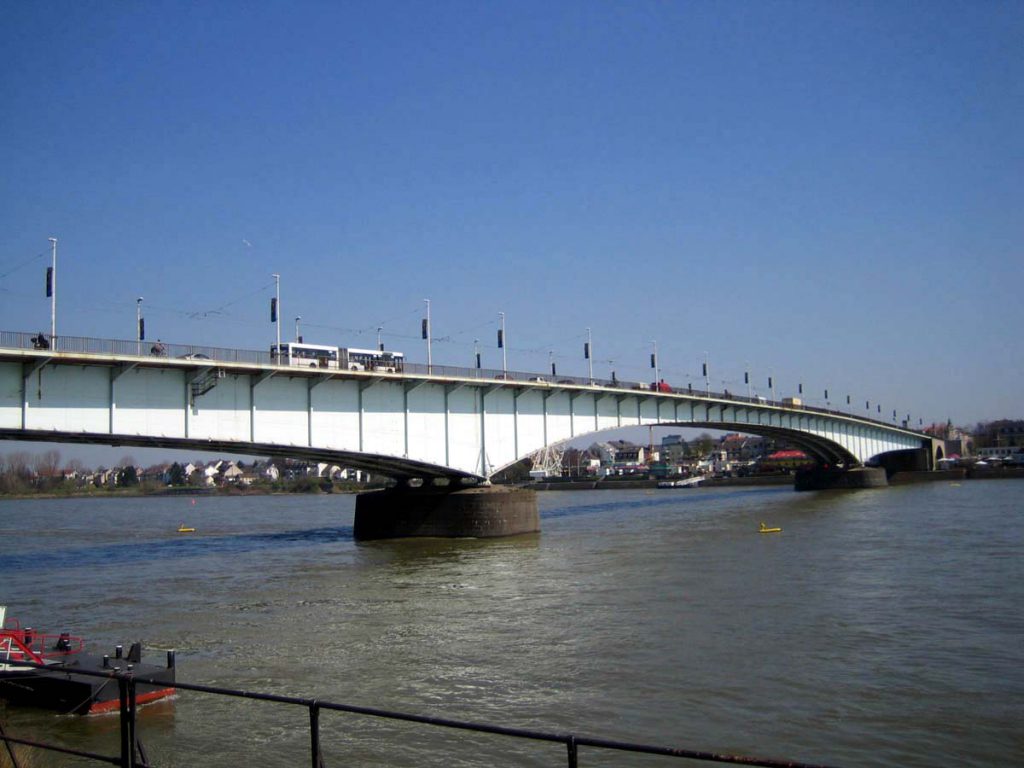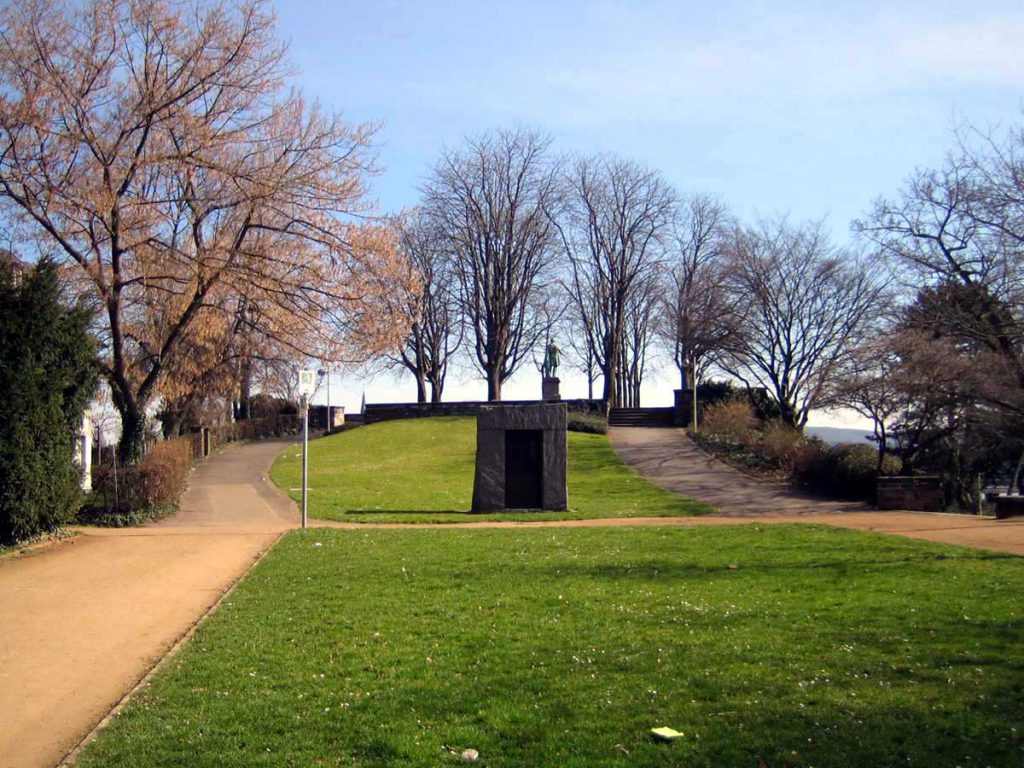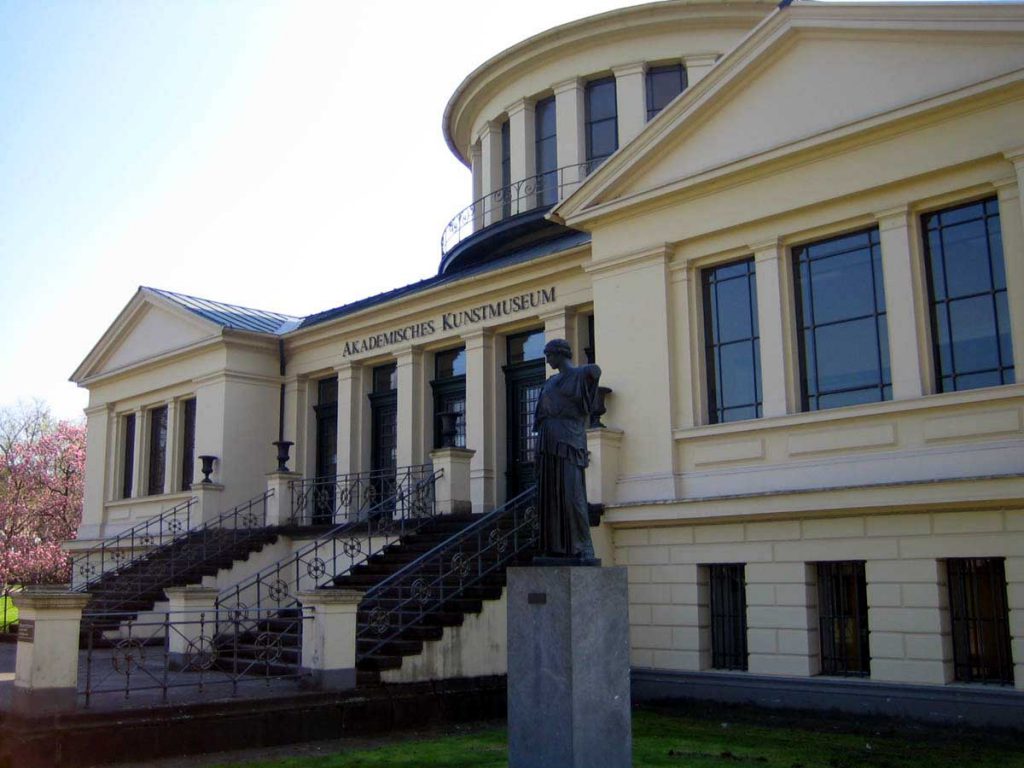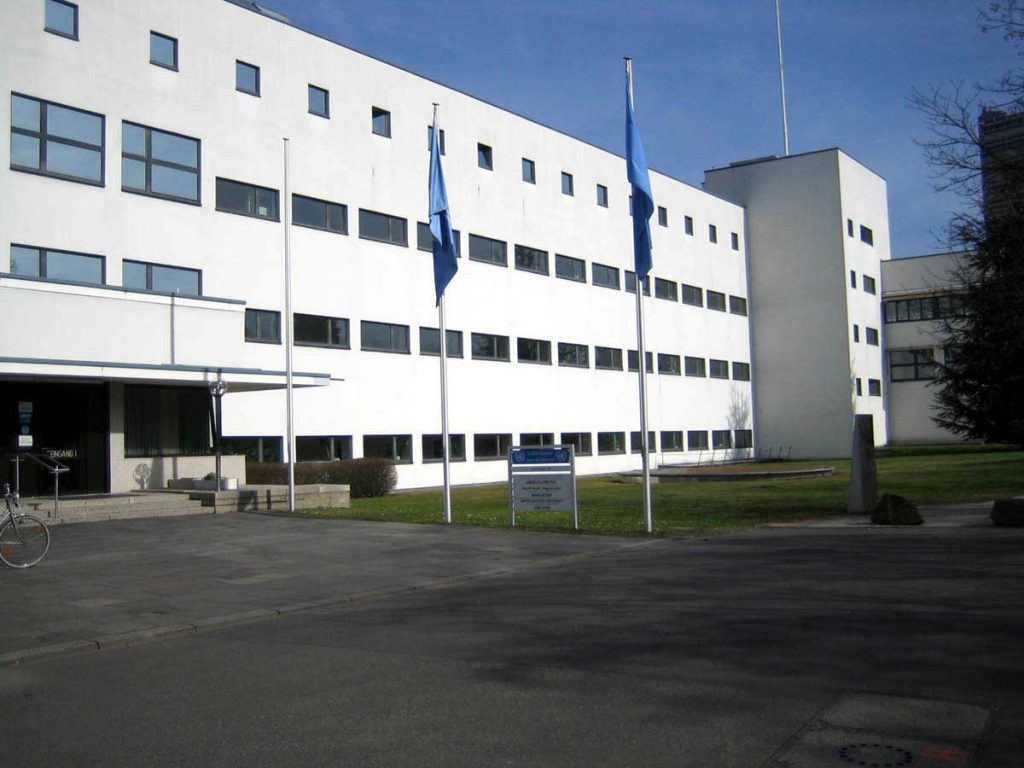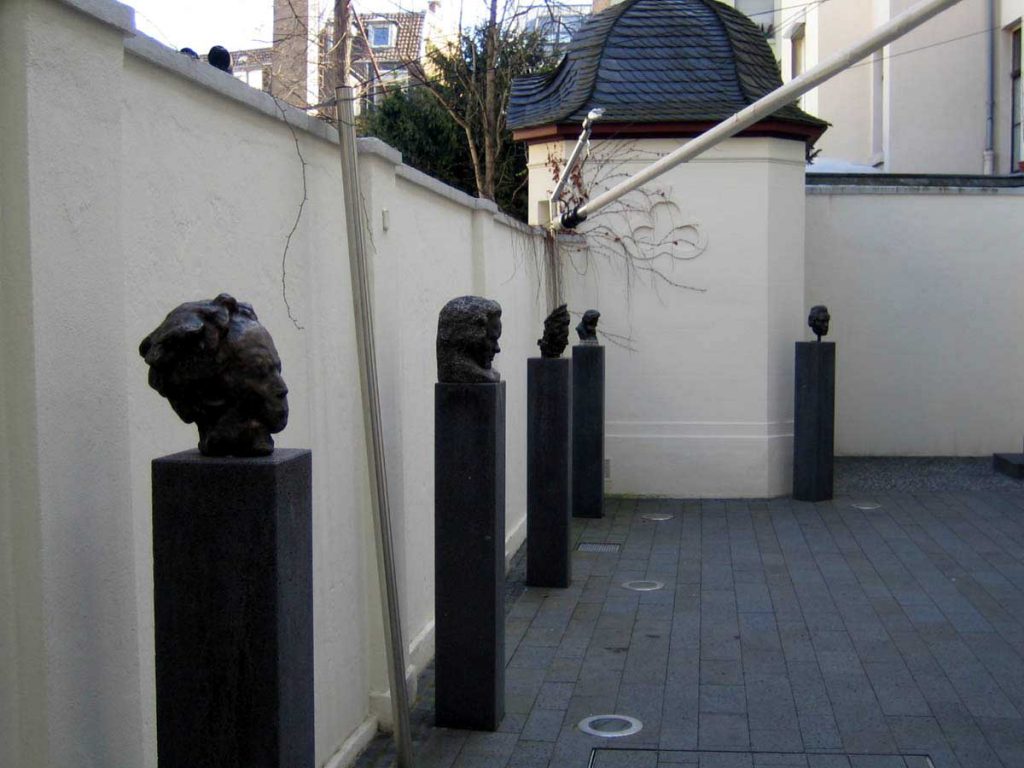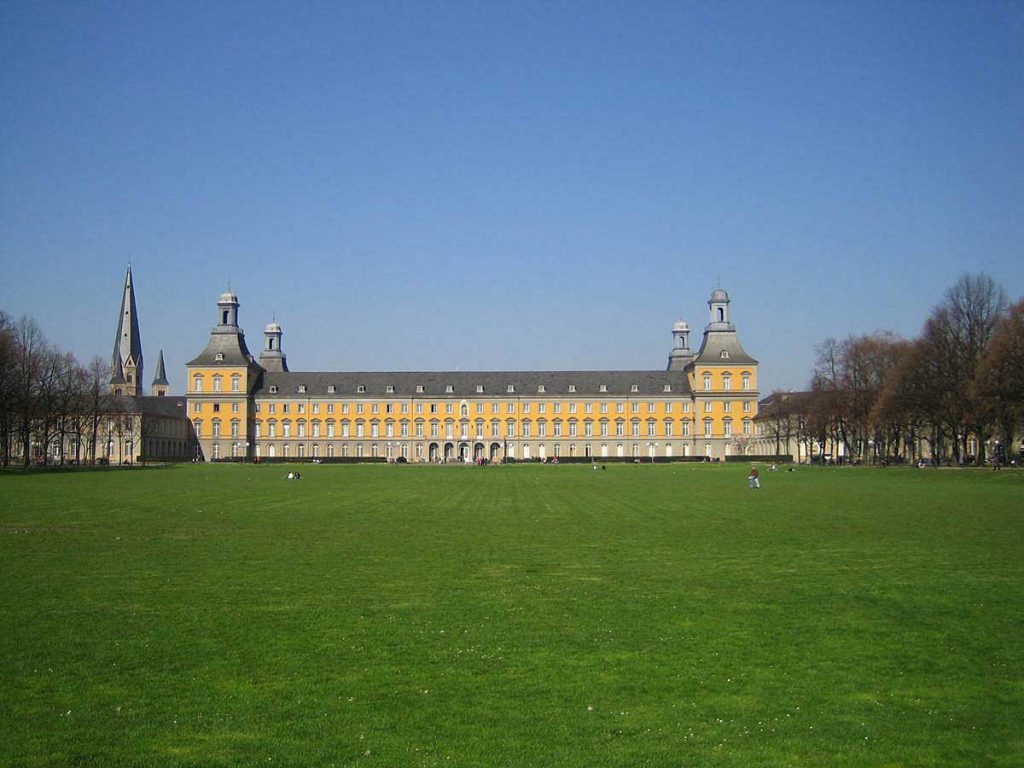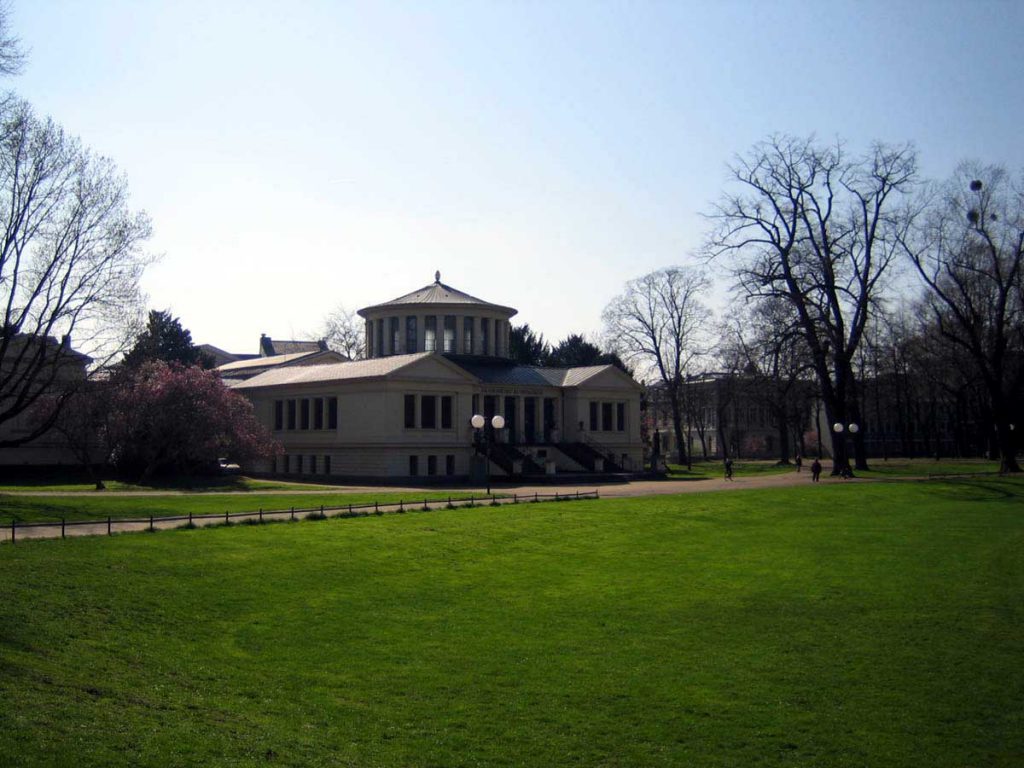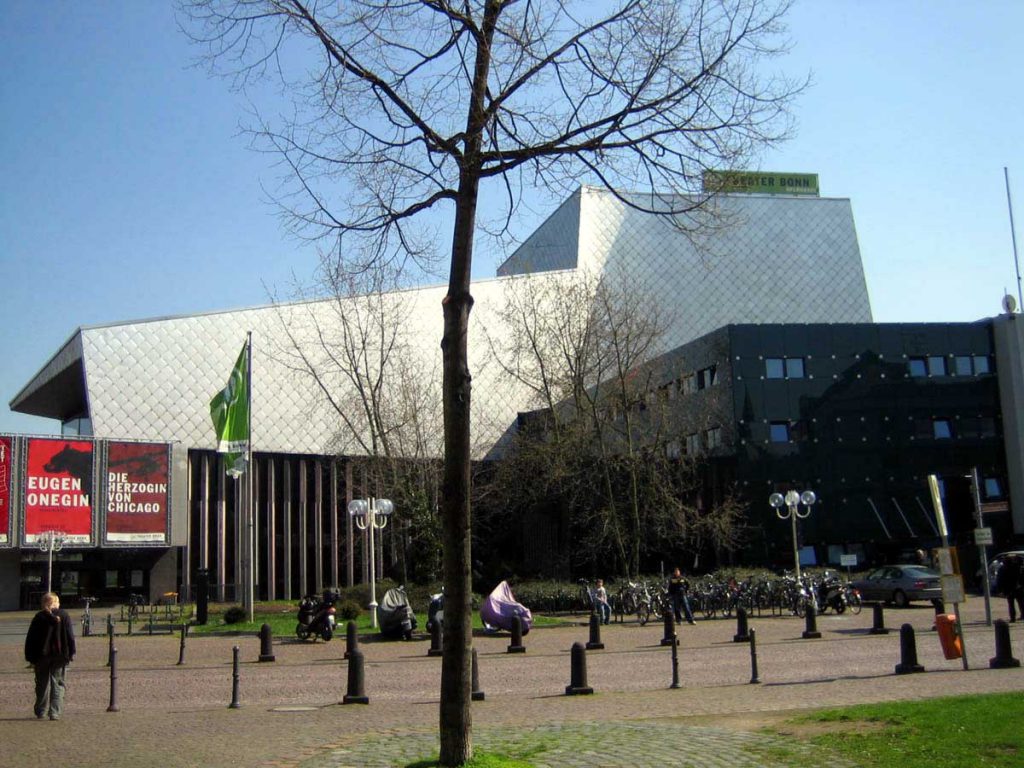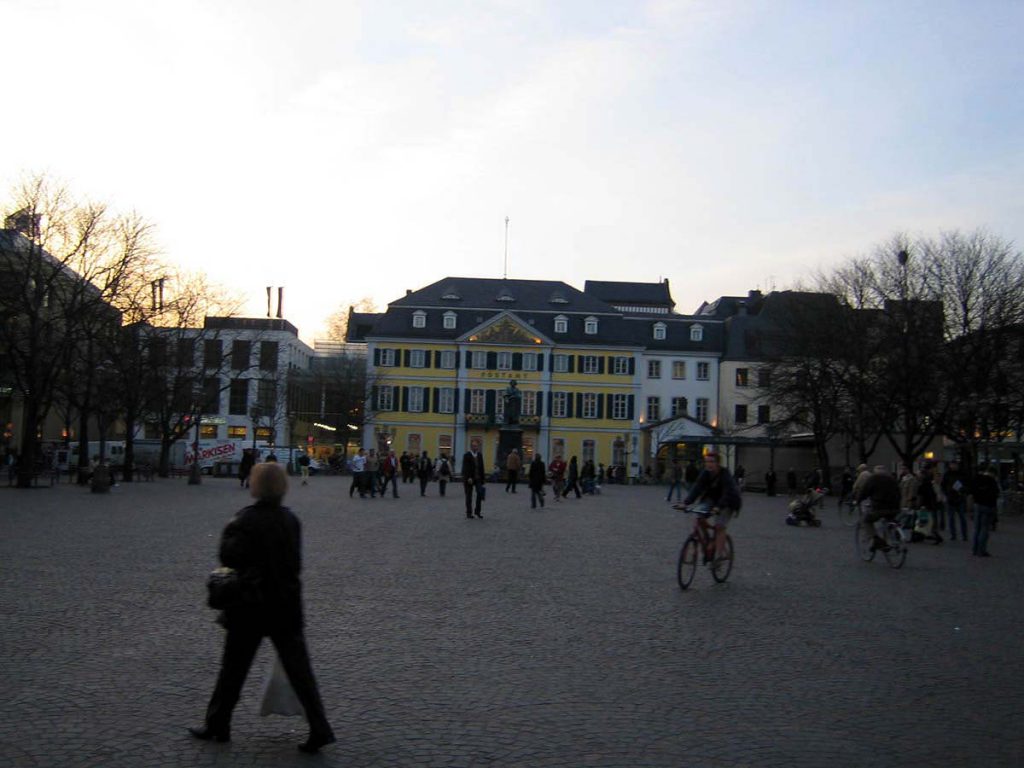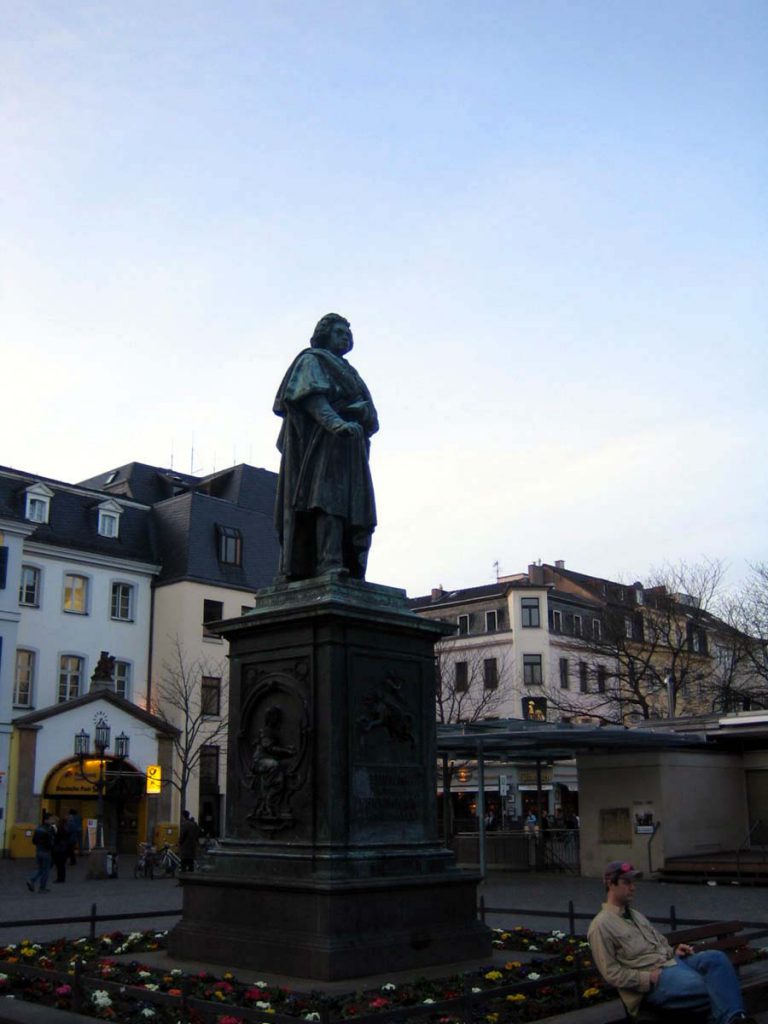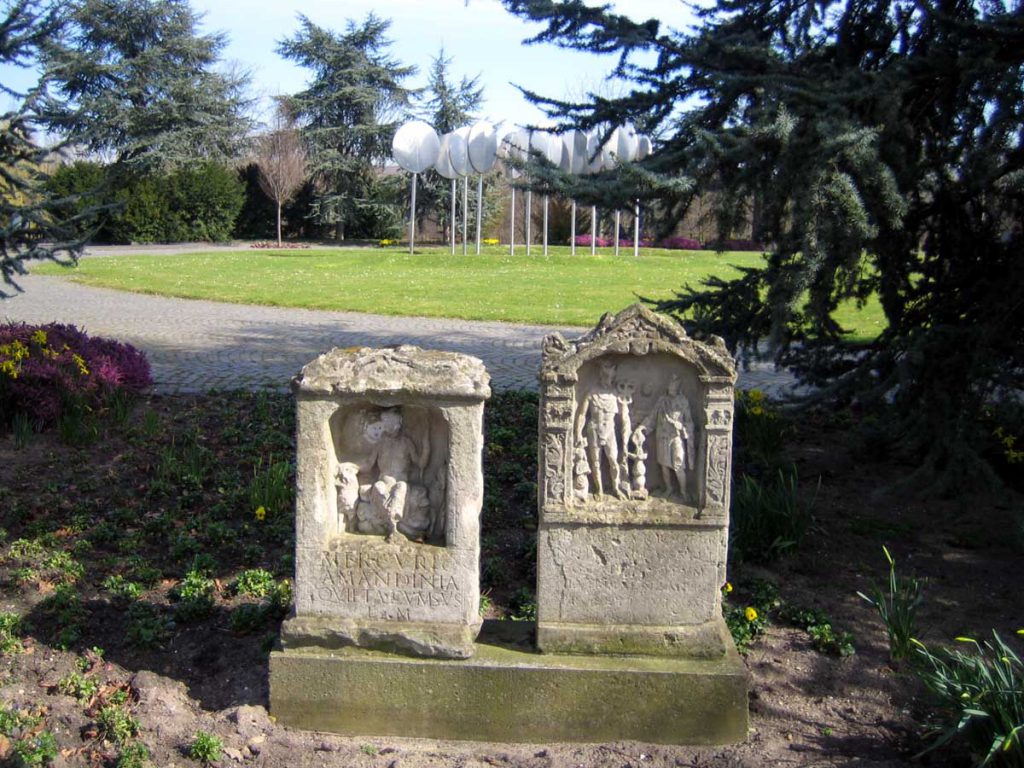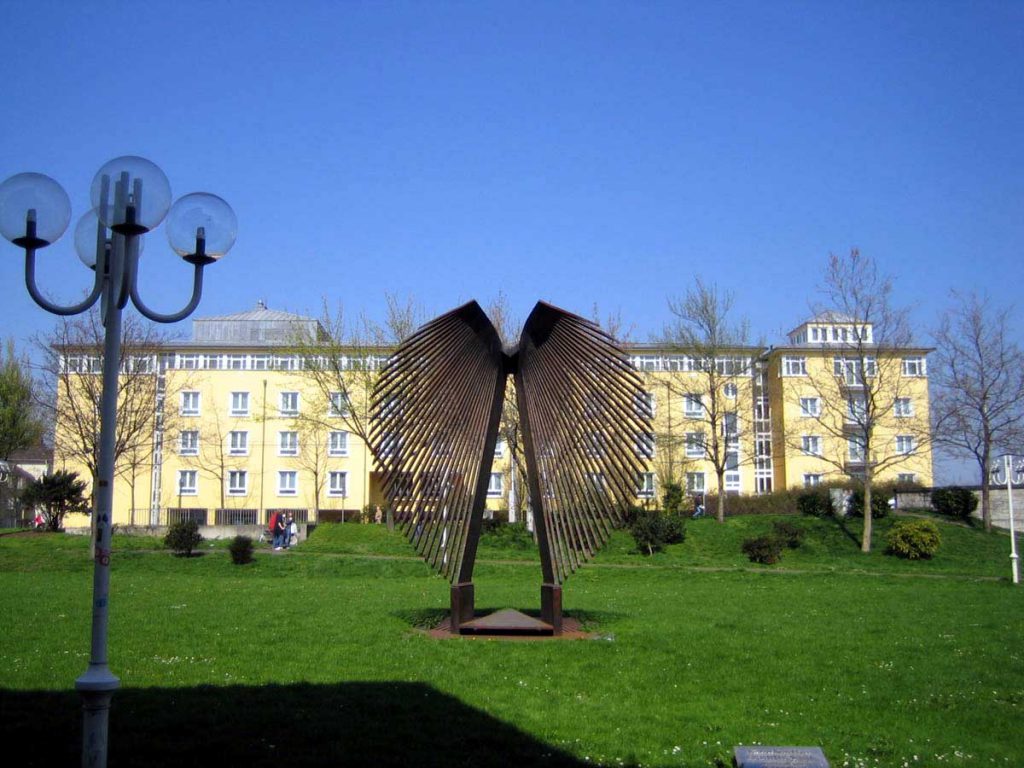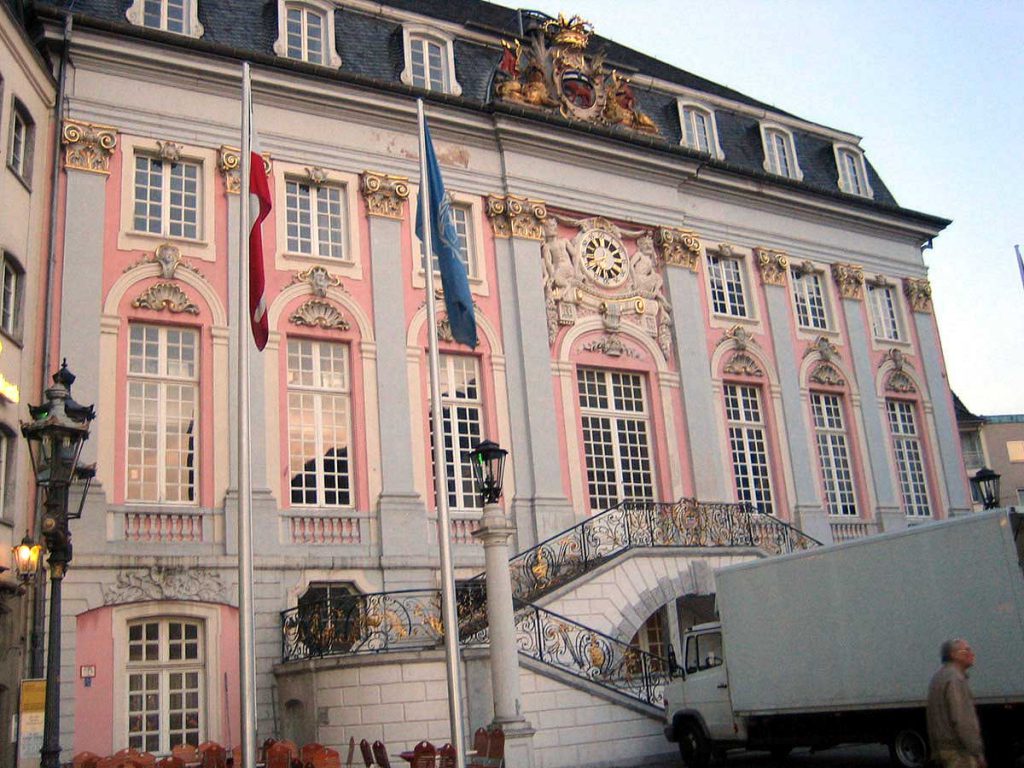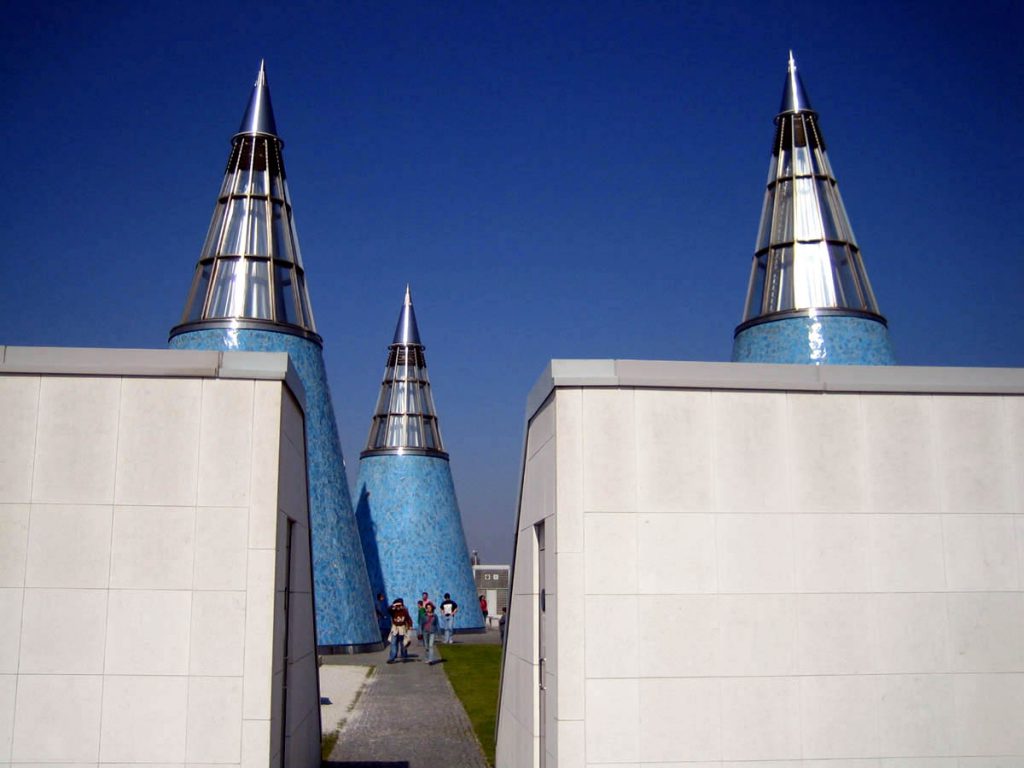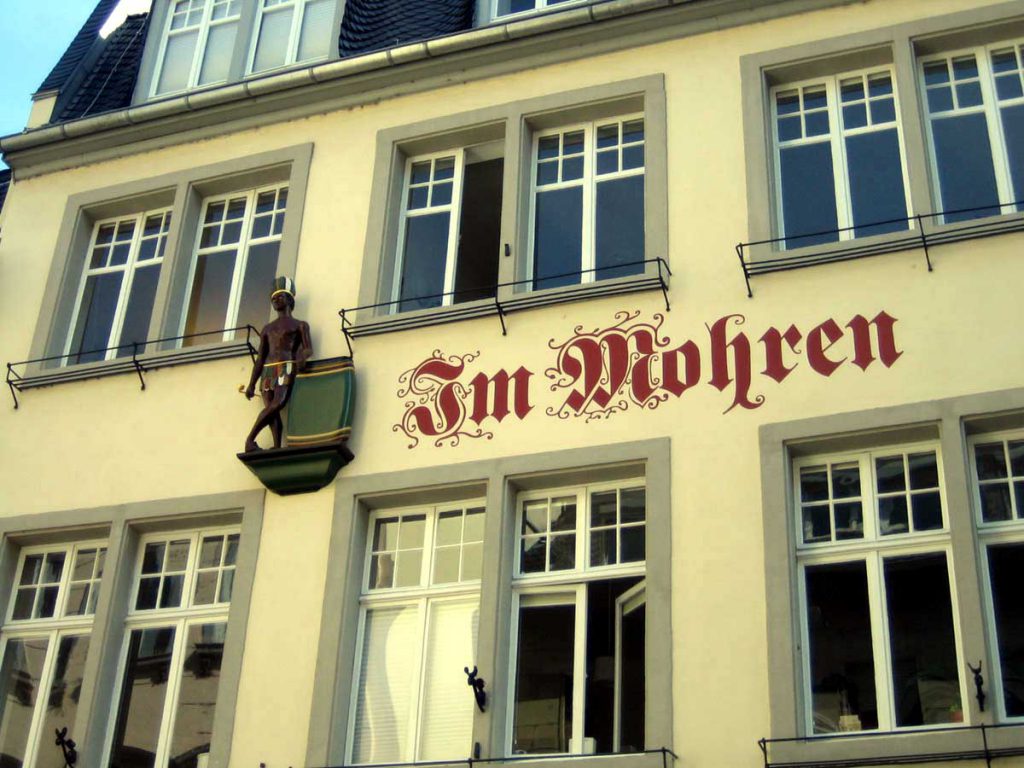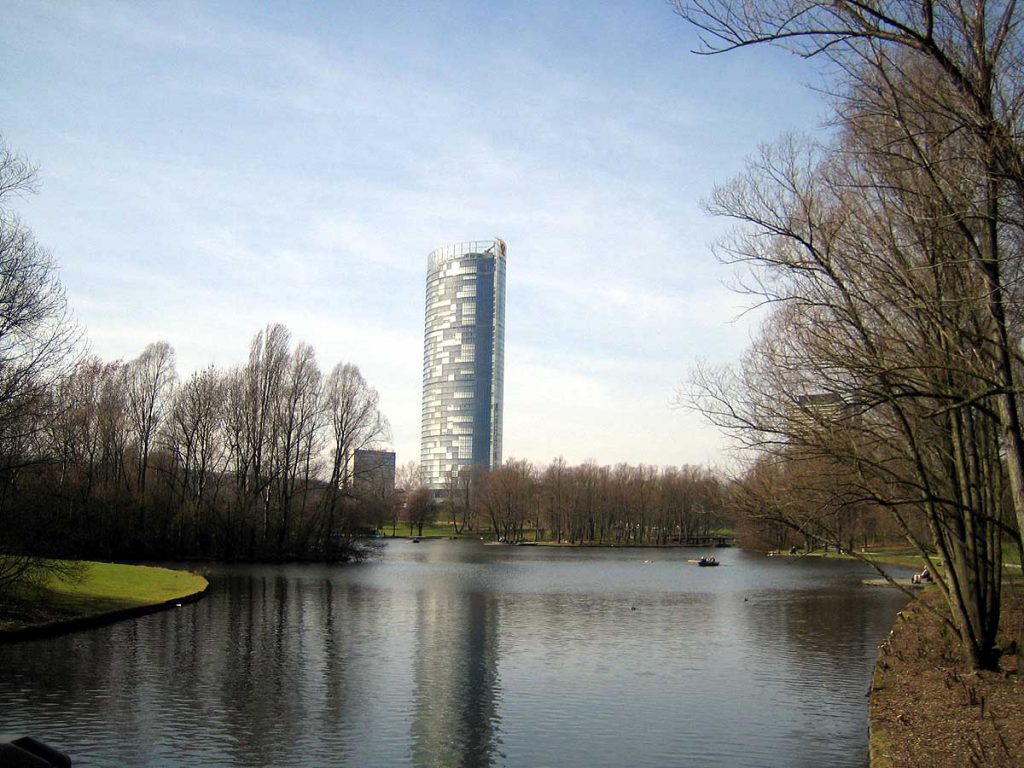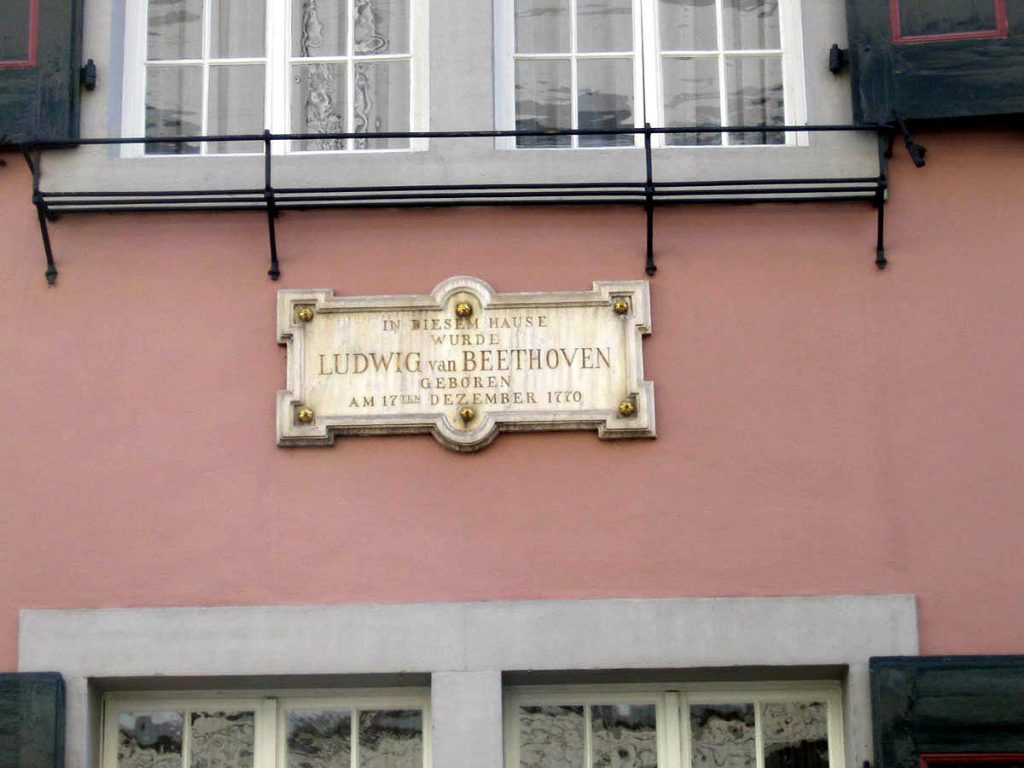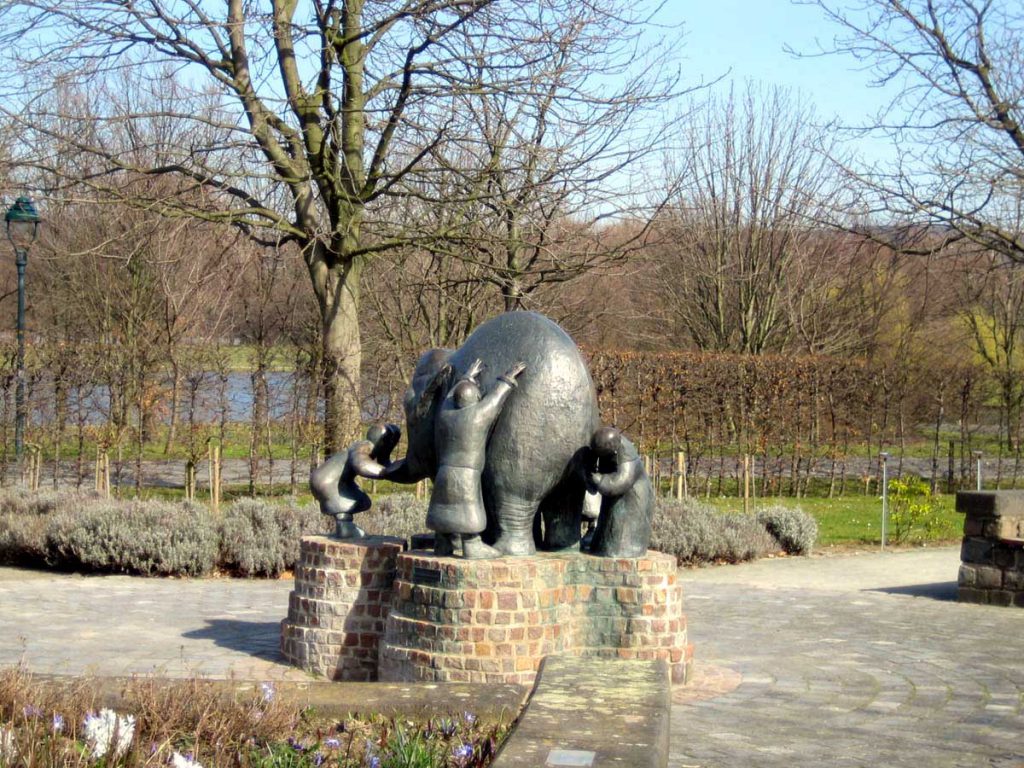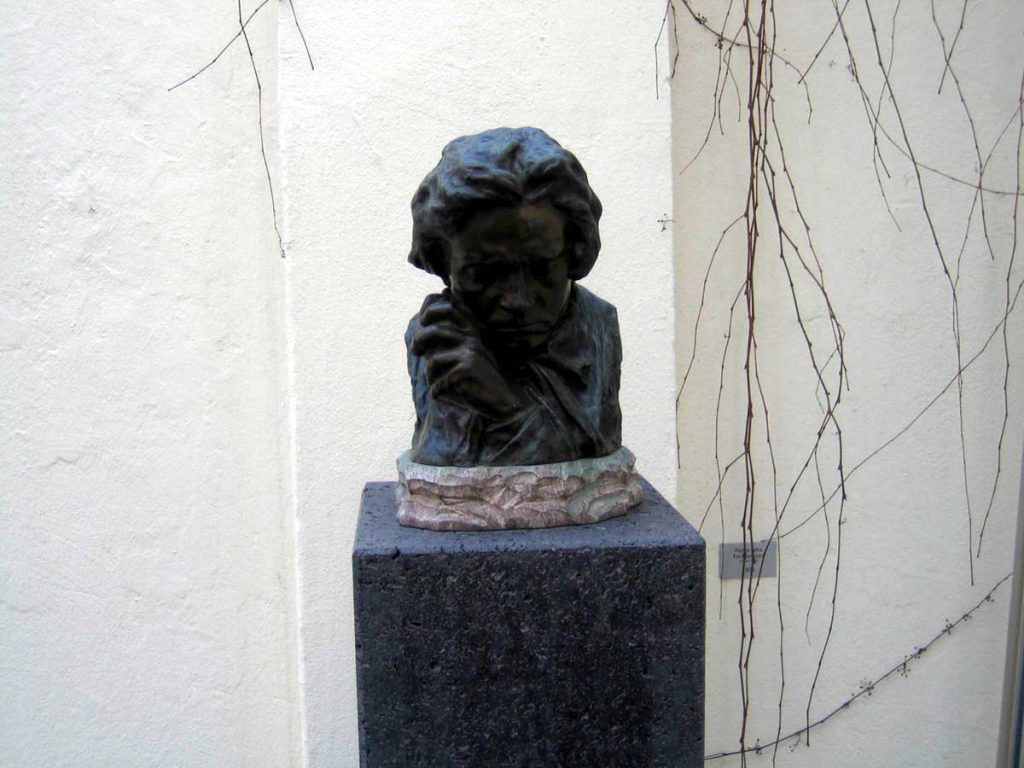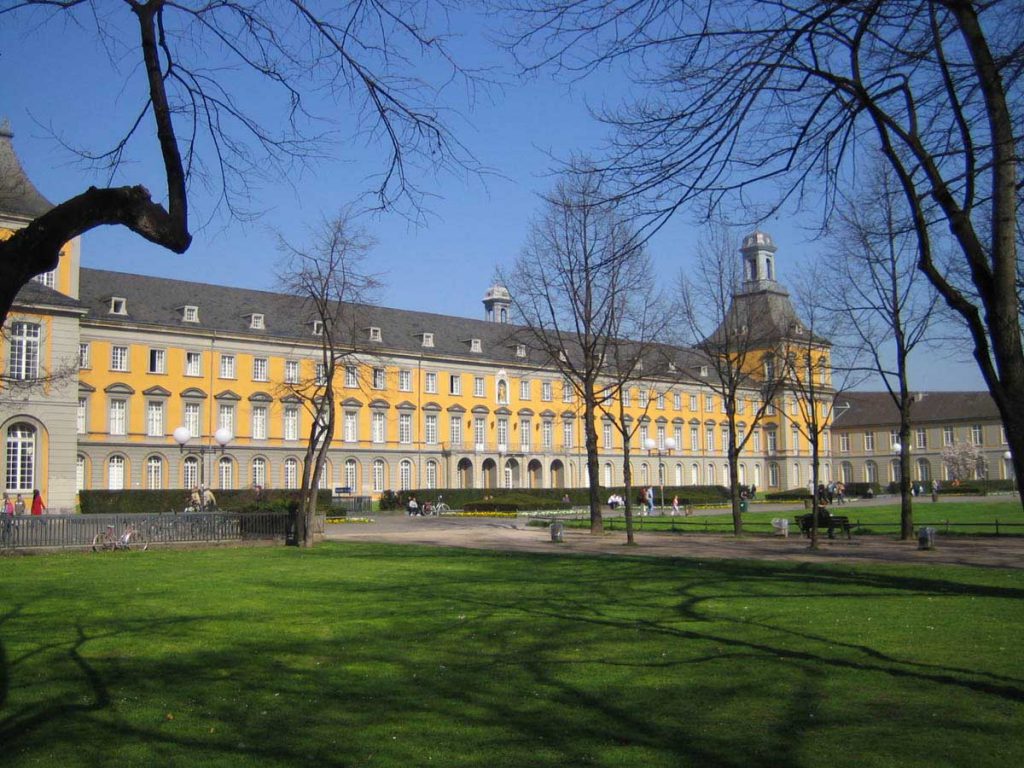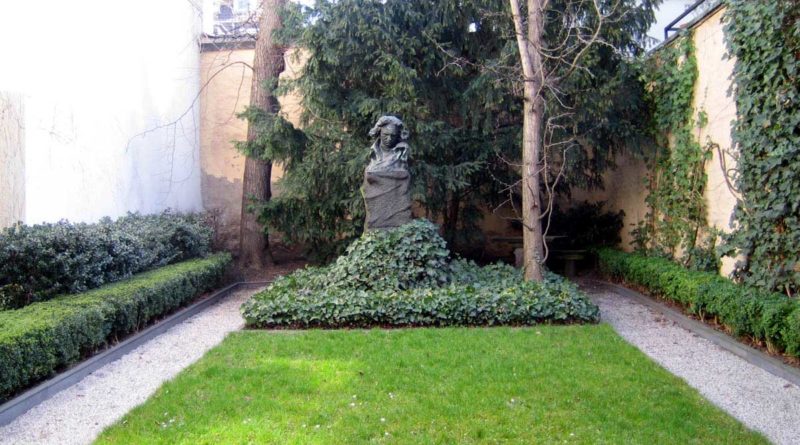Bonn
Bonn is a city in Germany. Population 2004: 315 000. In the Bundesland of North Rhine-Westphalia, located about 20 kilometres south of Cologne on the river Rhine. It was the capital of West Germany from 1949 to 1990.
The history of the city dates back to Roman times. About 10 BC the Romans constructed a bridge across the Rhine close to a place called “Bonna”. After the Roman defeat in the Battle of the Teutoburg Forest this small camp was enlarged to become a fort for 7000 legionnaires.
The fort became a town which remained after the Romans left. Between the 11th and 13th centuries, the Romanesque style Munster (cathedral) was built, and in 1597 it became the capital of the principality of Cologne. The town gained more influence and grew considerably. The elector Clemens August (ruled 1724-1761) ordered the construction of a series of Baroque buildings which still give the city its character. Another memorable ruler was Max Franz (ruled 1784-1794), who founded the university and the spa quarter of Bad Godesberg. In addition he was a patron of the young Ludwig van Beethoven, who was born in the city in 1770; the elector financed the composer’s first journey to Vienna.
In 1794 the town was seized by French troops. It became a part of the Napoleonic Empire. In 1815 Bonn was taken by Prussia and remained a Prussian city until 1945. The town was of little relevance in these years.
Following World War II Bonn was in the British zone of occupation, and in 1949 became the capital of West Germany. The choice of Bonn was made due to the advocacy of Konrad Adenauer, who was from near Cologne.
The German reunification in 1990 made Berlin the nominal capital of Germany again. However, this decision did not necessarily imply that the republic’s political institutions would also move. This was only concluded by the Bundestag (Germany’s parliament) on June 20, 1991, after a heated debate. While the government and parliament moved, as a compromise, some of the ministries largely remained in Bonn, with only the top officials in Berlin. 58 kilometers from Bonn you can visit old town Dusseldorf and enjoy its sights and beauties.
Beethoven House
In November 1767 the recently married electoral court singer and his wife Maria Magdalena moved into the garden wing of the house at Bonngasse 20. Their son Ludwig was born in one of the tiny attic rooms in December 1770.
It is one of the few remaining eighteenth century houses in Bonn. Its baroque stone facade was erected over cellars dating back to the twelfth or thirteenth century.
The family left the crowded rooms a few years after Ludwig van Beethoven’s birth on 16 or 17 December 1770.
In 1889 the “Beethoven-Haus” Society was founded with the aim of purchasing the house and establishing a memorial to the composer.
Large parts of the building were still in the same state they had been in since the second half of the eighteenth century.
The relatively small amount of damage it had suffered during the war was put to rights at the beginning of the 1950s. At the end of the 1960s the house underwent major restoration work for a second time and again between 1994-1996. Today the Museum is spread over both houses. A room on the ground floor can be used as a lecture theatre and also for small concerts.
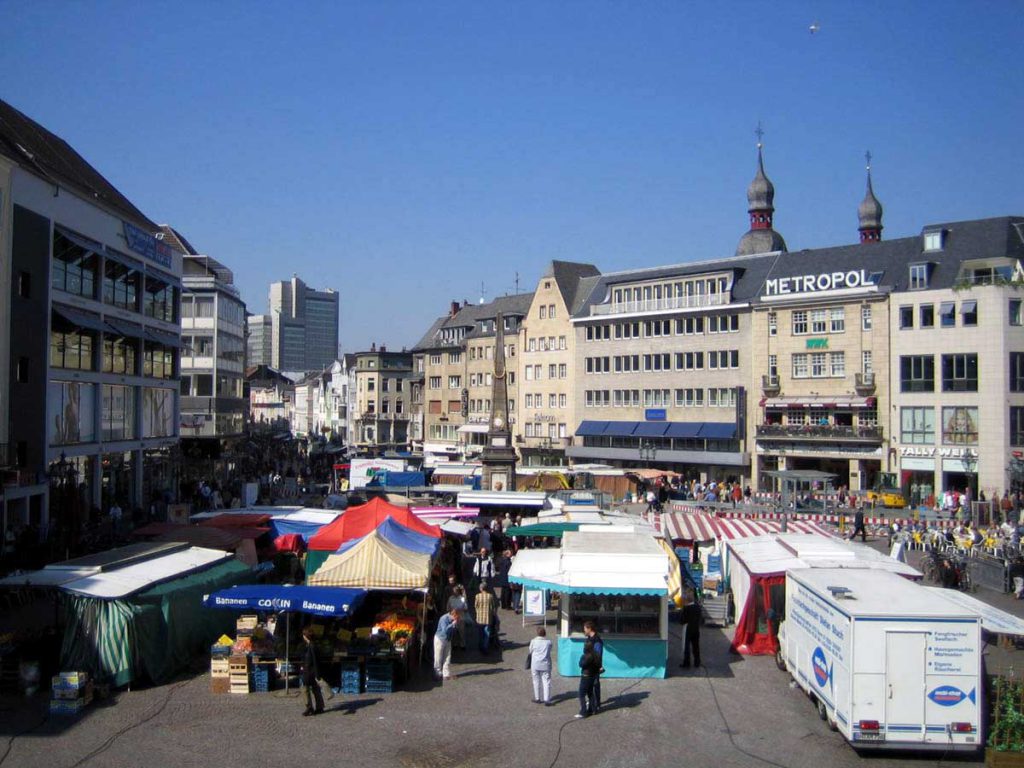
Exploring Bonn
Nestled along the picturesque banks of the Rhine River, Bonn is a charming city in western Germany that seamlessly blends rich history with modernity. As the birthplace of Ludwig van Beethoven and the former capital of West Germany, Bonn boasts a wealth of cultural treasures, stunning architecture, and vibrant atmosphere. Whether you’re a history buff, a music aficionado, or simply seeking a delightful European getaway, Bonn has something to offer for every traveler. In this comprehensive travel guide, we’ll explore the must-see attractions, cultural experiences, culinary delights, and practical tips for making the most of your visit to this enchanting city.
Exploring Historic Landmarks
Begin your exploration of Bonn by delving into its rich history and visiting its iconic landmarks. Start with a stroll through the picturesque streets of the Altstadt (Old Town), where you’ll encounter charming cobblestone alleyways, historic buildings, and bustling market squares. Be sure to visit the Marktplatz, home to the imposing Beethoven Monument, a tribute to the city’s most famous son.
No visit to Bonn would be complete without exploring the birthplace of Ludwig van Beethoven. The Beethoven House, located in the heart of the city, is a meticulously preserved museum dedicated to the life and works of the legendary composer. Step inside to admire original manuscripts, personal artifacts, and immersive exhibits that offer insight into Beethoven’s revolutionary musical genius.
For a glimpse into Bonn’s political history, visit the Haus der Geschichte der Bundesrepublik Deutschland (House of the History of the Federal Republic of Germany). This fascinating museum chronicles the events that shaped post-war Germany, from the division of the country to its reunification, through interactive exhibits, multimedia displays, and archival artifacts.
Cultural Immersion and Artistic Enclaves
Bonn is a city teeming with cultural vibrancy and artistic expression, evident in its thriving arts scene and vibrant neighborhoods. Explore the Kunstmuseum Bonn, a contemporary art museum showcasing a diverse collection of modern and contemporary artworks by German and international artists. From paintings and sculptures to multimedia installations, the museum offers a comprehensive overview of 20th and 21st-century art movements.
For a taste of Bonn’s alternative culture and creative energy, head to the Südstadt district, known for its eclectic mix of galleries, boutiques, and street art. Wander through its charming streets lined with colorful townhouses, cozy cafes, and independent shops, soaking in the bohemian atmosphere that permeates the area.
Music lovers should not miss the opportunity to attend a performance at the Beethovenhalle, Bonn’s premier concert hall and cultural hub. Home to the Beethoven Orchestra Bonn, the Beethovenhalle hosts a diverse program of classical concerts, chamber music recitals, and contemporary performances throughout the year, paying homage to the city’s musical heritage.
Culinary Delights and Gastronomic Adventures
No visit to Bonn would be complete without indulging in its culinary delights and savoring the flavors of German cuisine. Start your day with a leisurely breakfast at one of Bonn’s quaint cafes, where you can enjoy freshly brewed coffee and traditional German pastries, such as buttery croissants and flaky strudels.
For a taste of local specialties, head to the Altstadt and sample hearty dishes like schnitzel, sauerbraten, and bratwurst at one of the traditional taverns or beer gardens. Pair your meal with a refreshing glass of Kölsch, the crisp and light beer that is a regional favorite in the Rhineland.
If you’re in the mood for international cuisine, Bonn offers a diverse array of dining options, ranging from Italian trattorias and French bistros to Asian fusion restaurants and Middle Eastern eateries. Explore the Poppelsdorf neighborhood, home to a plethora of culinary gems serving up flavors from around the globe.
Practical Tips for Travelers
Before embarking on your journey to Bonn, here are a few practical tips to help you make the most of your visit:
- Transportation: Bonn is easily accessible by train, with regular connections to major cities across Germany and Europe. Once in the city, public transportation options include buses, trams, and bicycles, making it easy to navigate the city and explore its attractions.
- Accommodation: Bonn offers a range of accommodation options to suit every budget and preference, from luxury hotels and boutique guesthouses to budget-friendly hostels and holiday apartments. Consider staying in the city center to be within walking distance of major attractions and amenities.
- Weather: Bonn experiences a temperate climate, with mild summers and cool winters. Pack accordingly, taking into account the season and any outdoor activities you plan to enjoy during your stay.
- Language: German is the official language spoken in Bonn, although English is widely understood and spoken, especially in tourist areas and establishments.
- Currency: The currency used in Bonn is the Euro (EUR). Credit cards are widely accepted, but it’s always a good idea to carry some cash for smaller purchases and transactions.
With its rich history, cultural attractions, culinary delights, and welcoming atmosphere, Bonn offers a memorable travel experience that will enchant and inspire visitors of all ages. Whether you’re exploring its historic landmarks, immersing yourself in its vibrant arts scene, or savoring its delectable cuisine, Bonn is sure to leave a lasting impression and beckon you to return time and time again.
